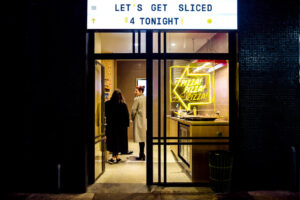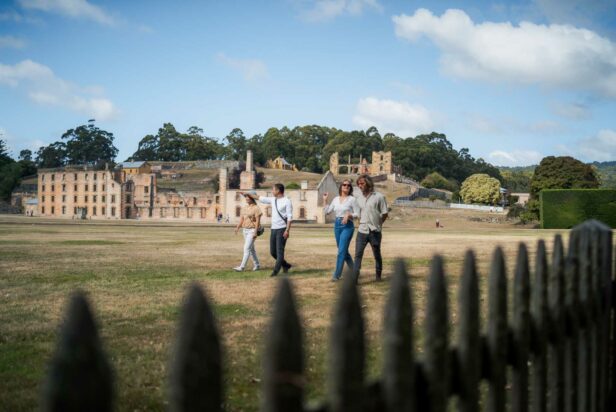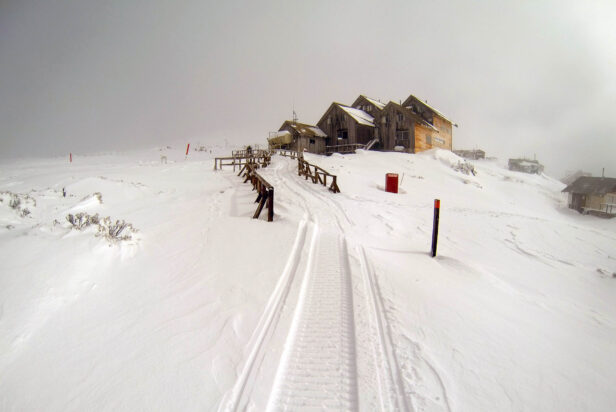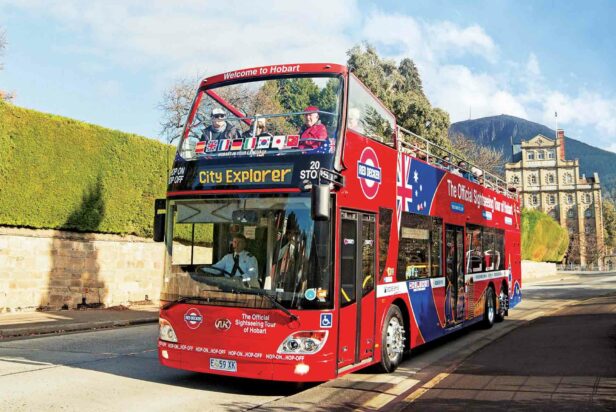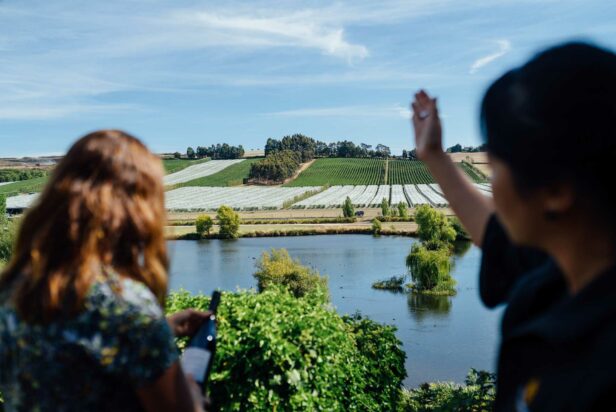Laneways with Grafitti
Colourful graffiti from local artists and how to find Melbourne’s last remaining Banksy.
Hosier Lane
Flinders St, Melbourne
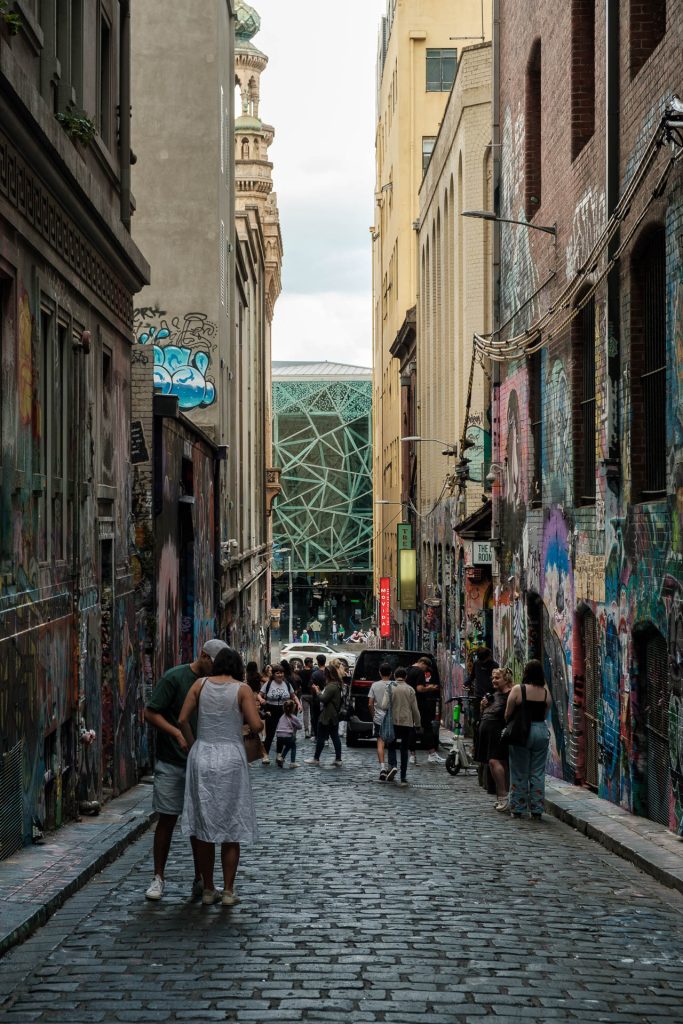
Hosier Lane is the darling of the Melbourne laneway scene. Regularly featured in tourism campaigns, Hosier Lane has come to symbolise Melbourne’s entire laneway scene. Filled with ever-changing street art, tourists flock here looking for the perfect photo opportunity.
The most impressive artwork is 50 meters (164 ft) high on the back of an office building. This untouchable portrait of an indigenous boy is by local artist, Adnate. Down Hosier Lane, you’ll also see Movida and Bar Tini – both Spanish tapas bars from the same operator.
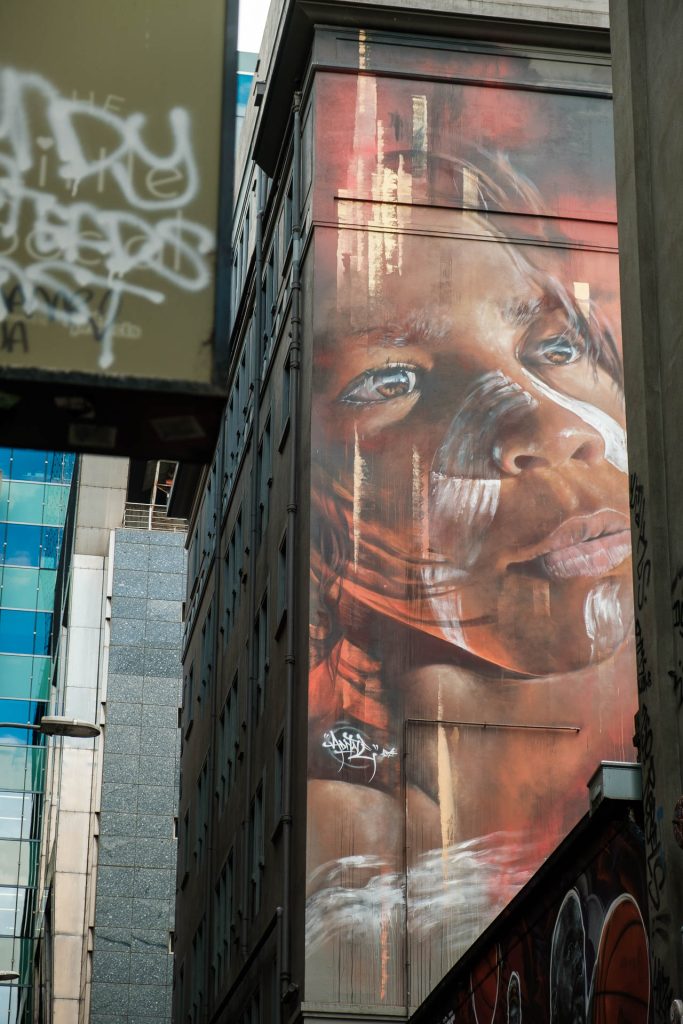
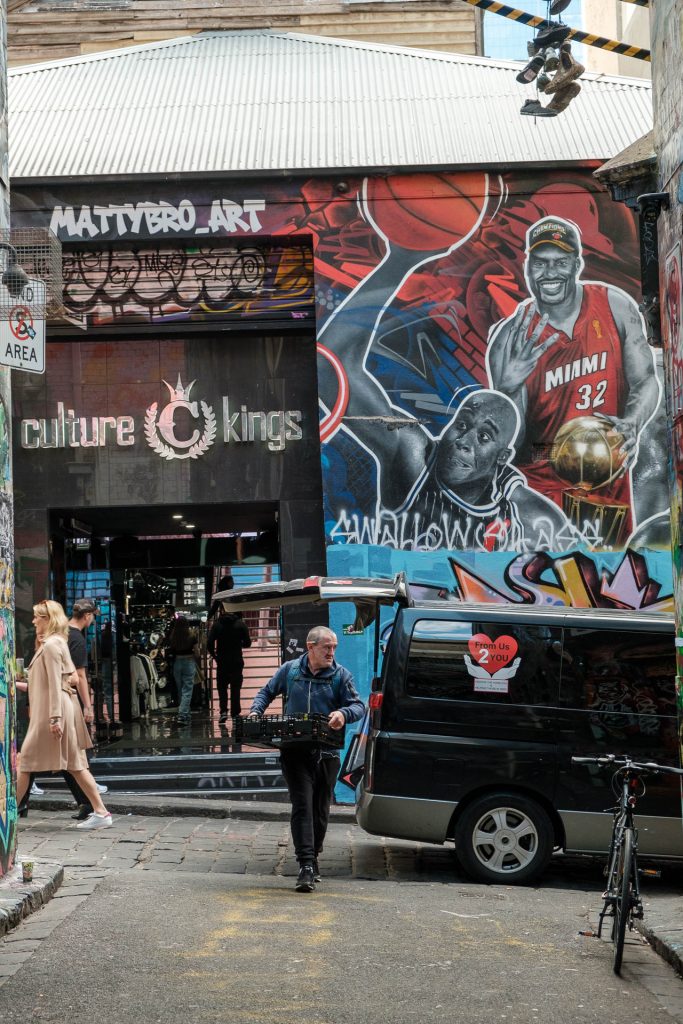
Yes, Hosier Lane is the most ‘commercial’ laneway in Melbourne. But due to its central location just across from Federation Square, – it’s super easy to check off your bucket list.
Advertisement
AC/DC Lane
Flinders Lane, Melbourne
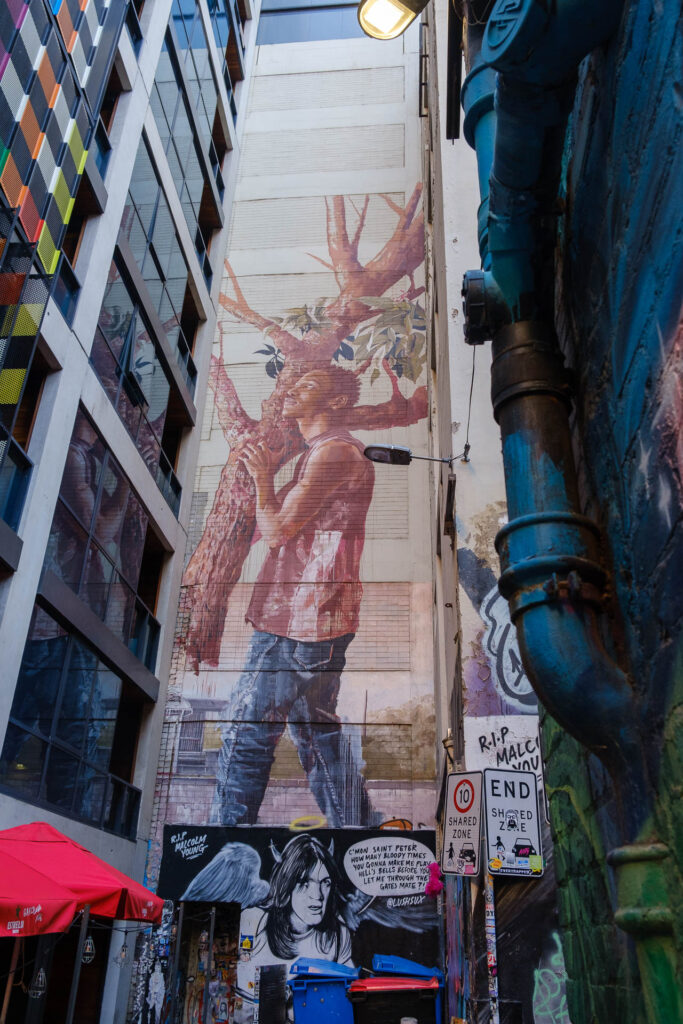
AC/DC – arguably one of the world’s greatest rock ‘n’ roll bands – spent their early days in a share house in St Kilda. In 1976 they drove down Swanston Street and shot a film clip for ‘It’s a Long Way to the Top” on the back of a ute.
Previously ‘Corporation Lane,’ this laneway was renamed AC/DC Lane in the early 2000s. It is now a hub for street art and fine dining. Among the graffiti, there is a 3D installation of Bon Scott ‘bursting’ through bricks. As well as a 30-metre painting of a young man carrying a tree.
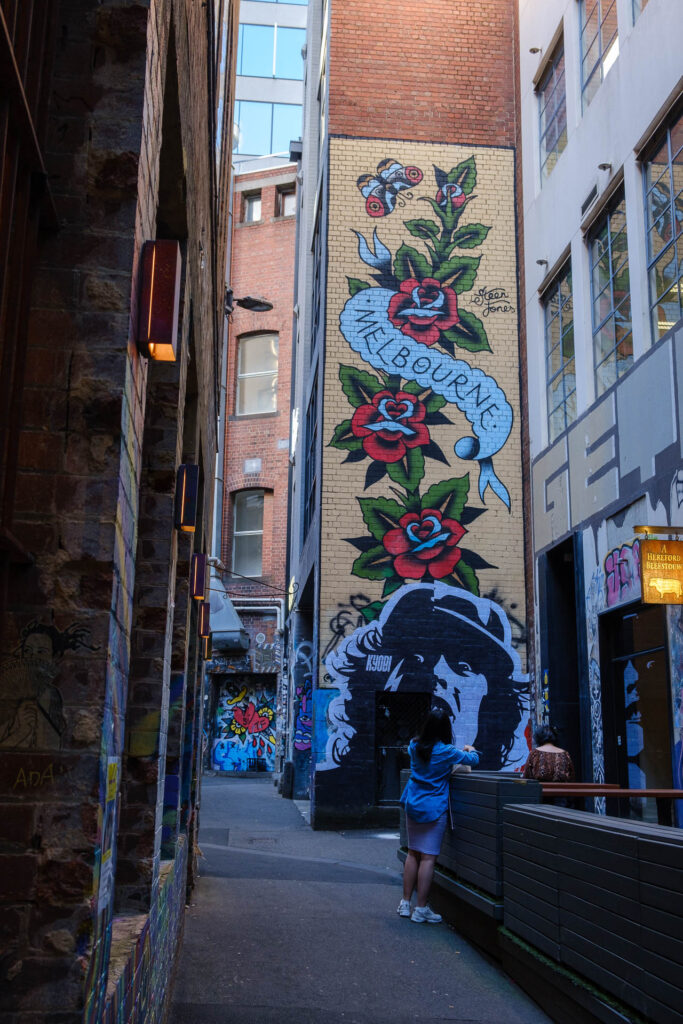
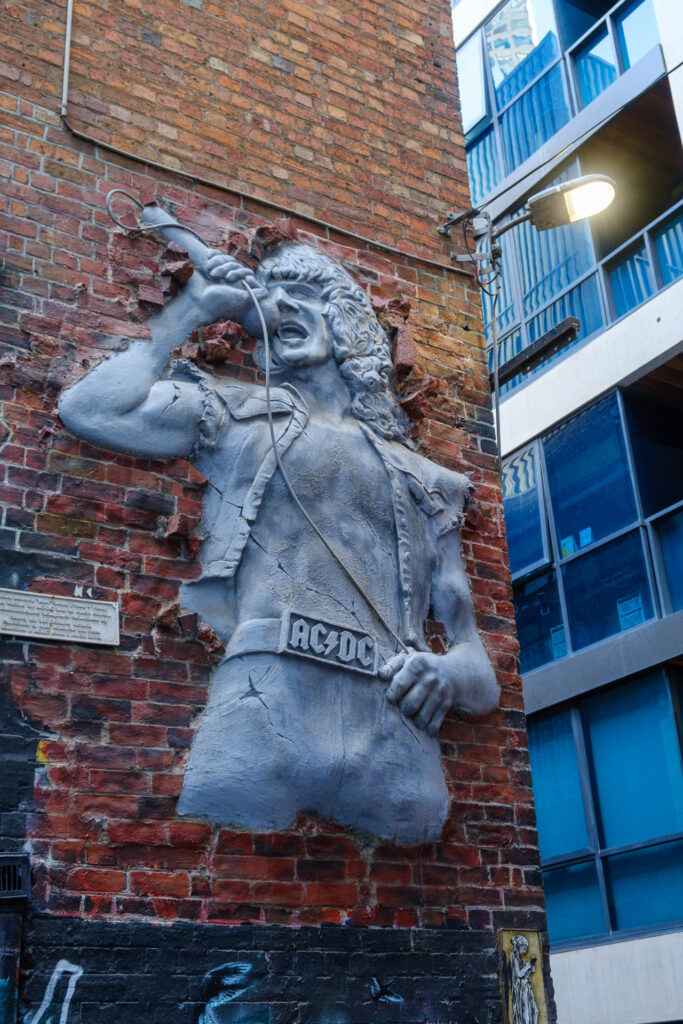
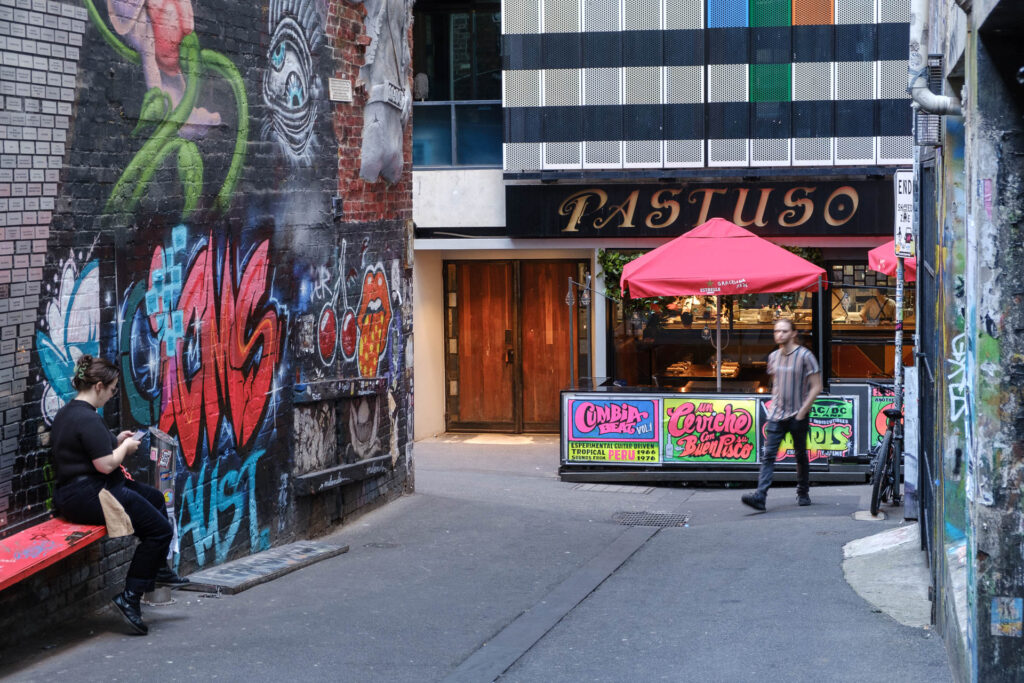
AC/DC Lane is also lively at night; there are several fine-dining bars and restaurants.
Advertisement
Duckboard Place
Flinders Lane, Melbourne
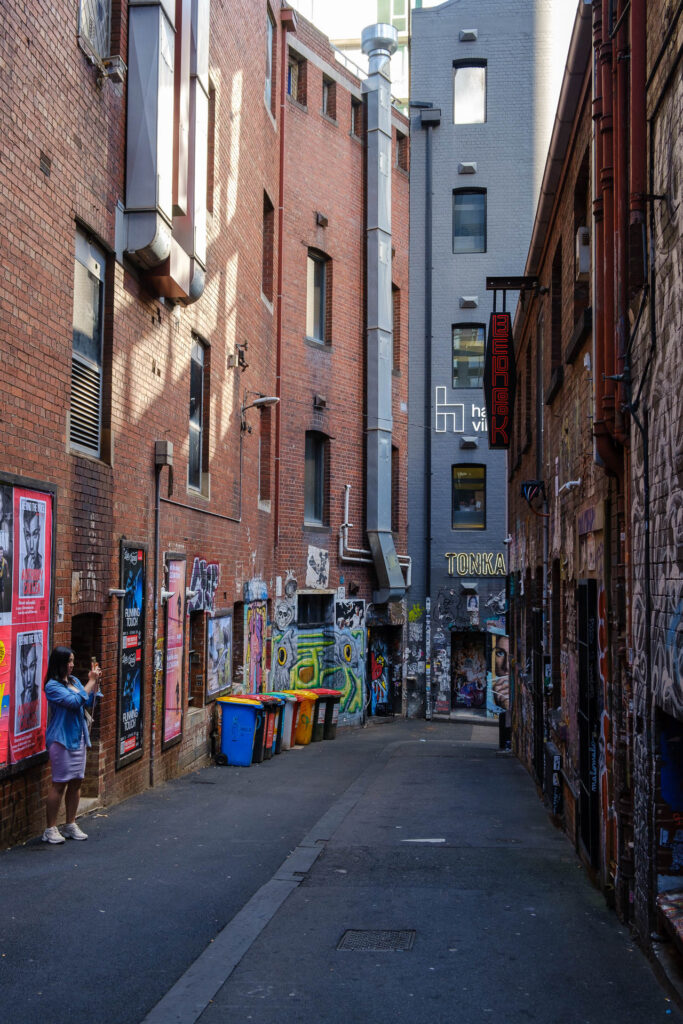
Duckboard Place is attached to AC/DC Lane, and together they form a horse-shoe-shaped detour from Flinders Lane.
Named in 1953 after the neighbouring Duckboard House – a venue that would entertain the troops during the interwar period – the term ‘duckboard’ was used to describe the slatted timber path laid out in the muddy trenches.
Duckboard Place has less to offer than AC/DC Lane, but it does contain Melbourne’s last remaining piece of artwork by Banksy.
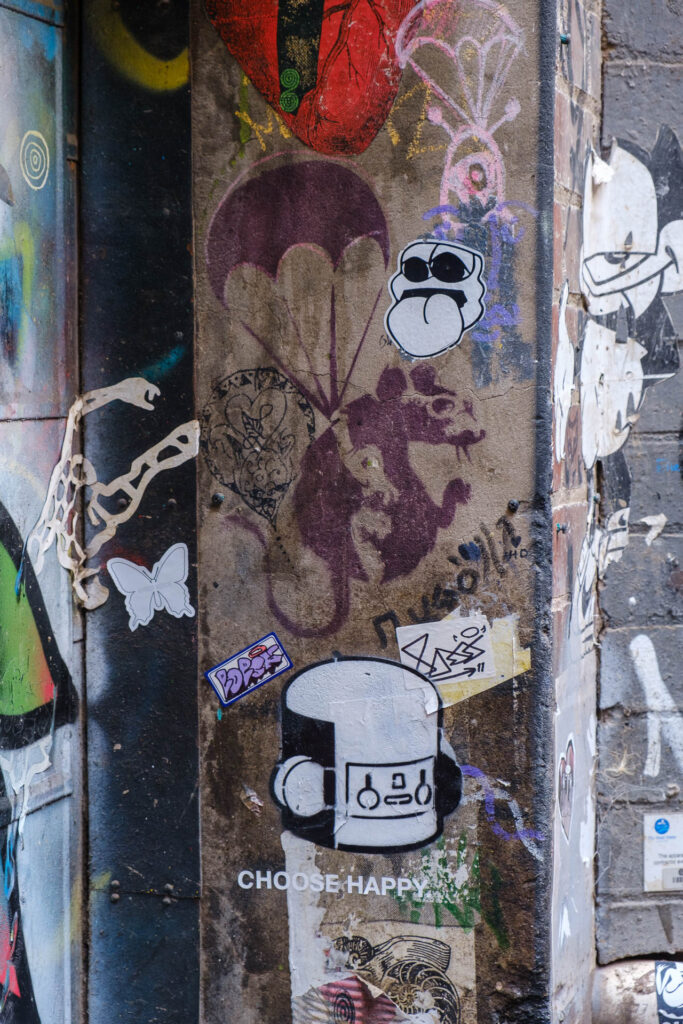
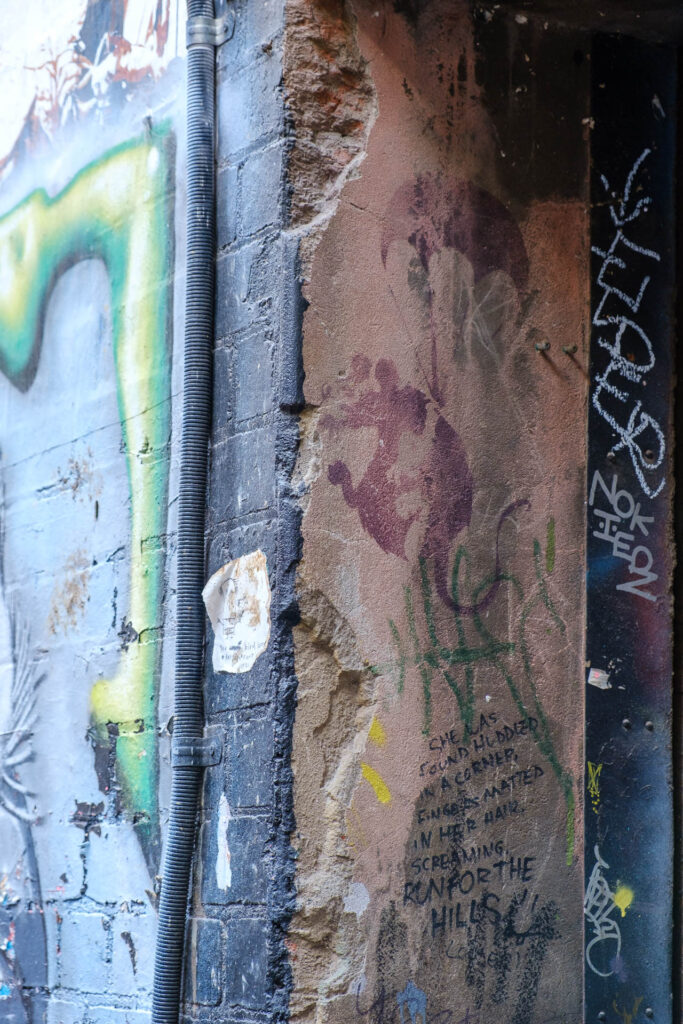
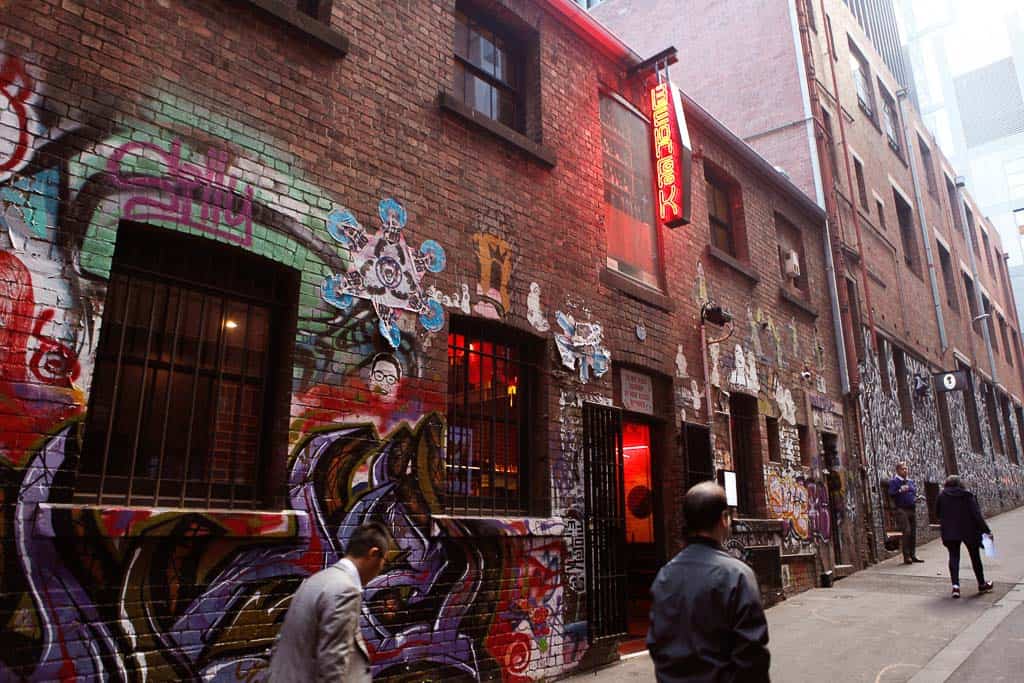
In the early 2000s, Banksy painted several pieces throughout the city – but unfortunately, most have been destroyed.
But you can still find two Banksy stencils of parachuting rats at the end of Duckboard Place – one on either side of the doorway in the bend.
Another Banksy is on the ceiling at Revolver on Chapel Street – Melbourne’s most infamous nightclub.
Croft Alley
Little Bourke St, Melbourne
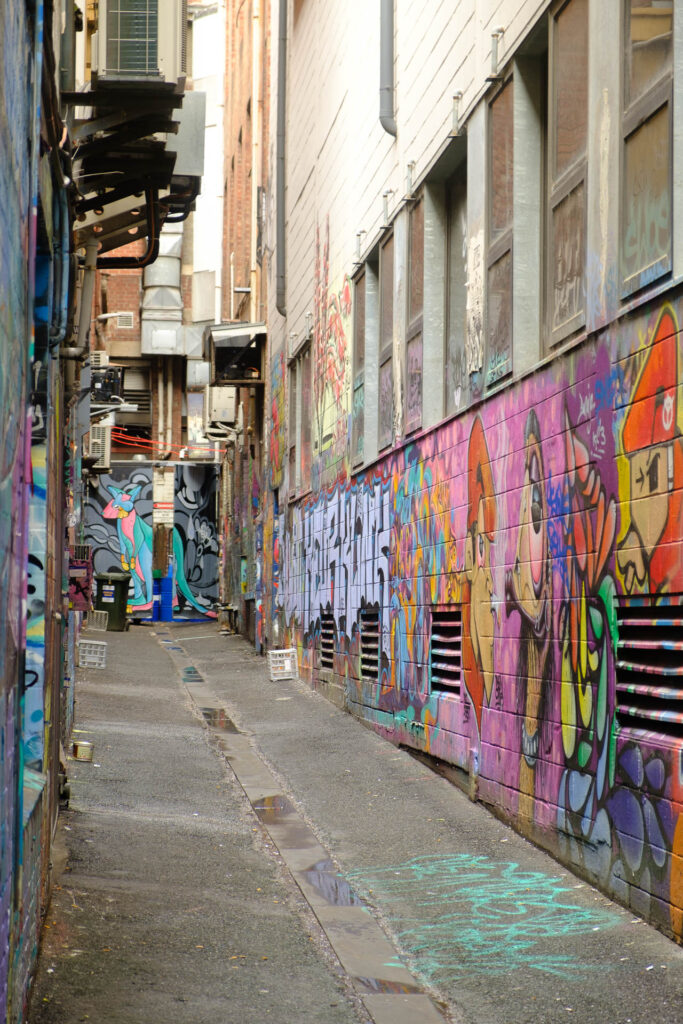
This laneway attached to Chinatown is easily overlooked. The walls are covered in graffiti, the bins are overflowing, and restaurant workers crouch to enjoy a smoke break.
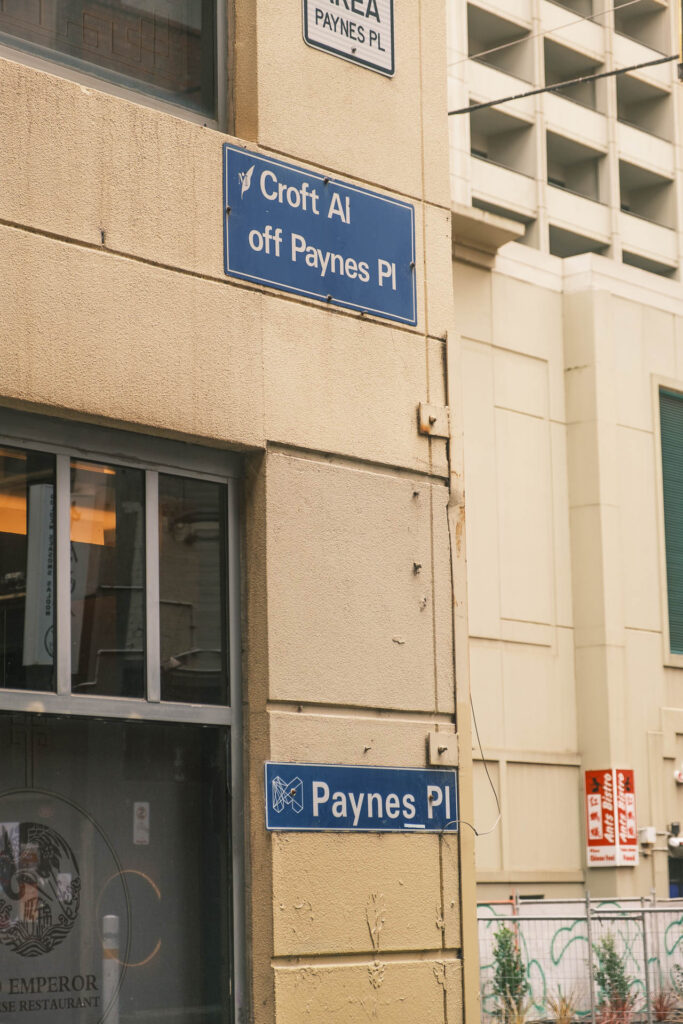
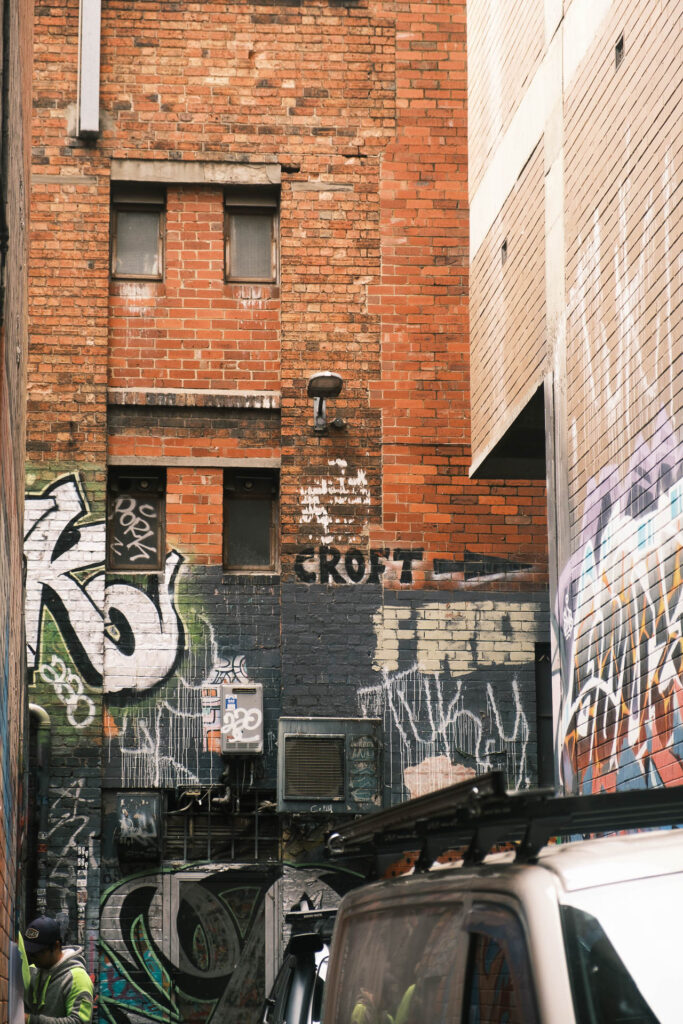
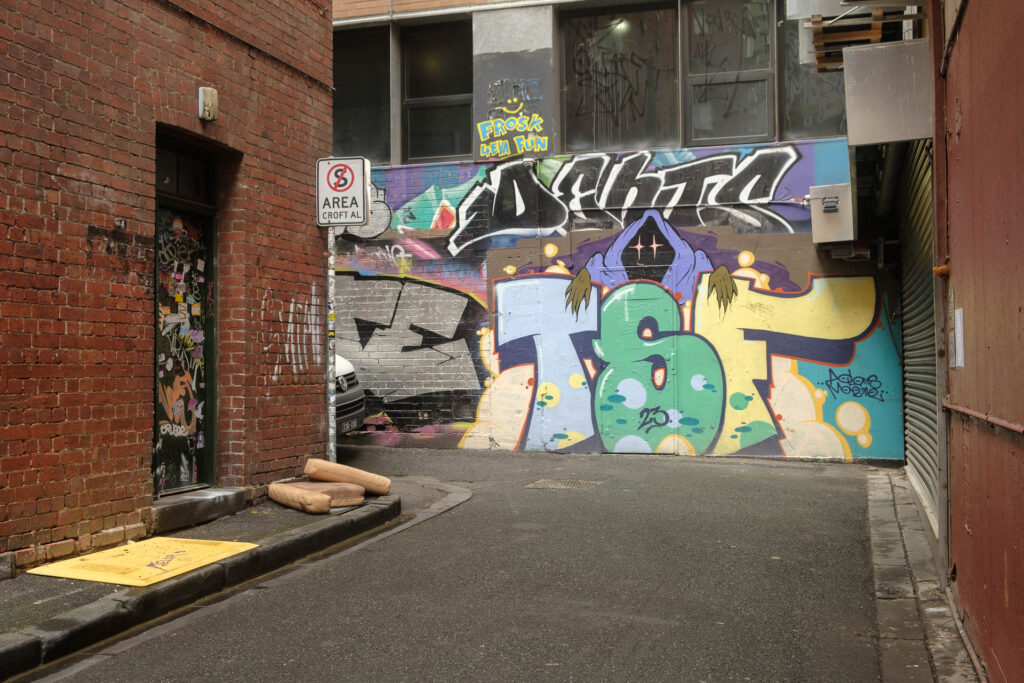
Presgrave Place
Little Collins St, Melbourne
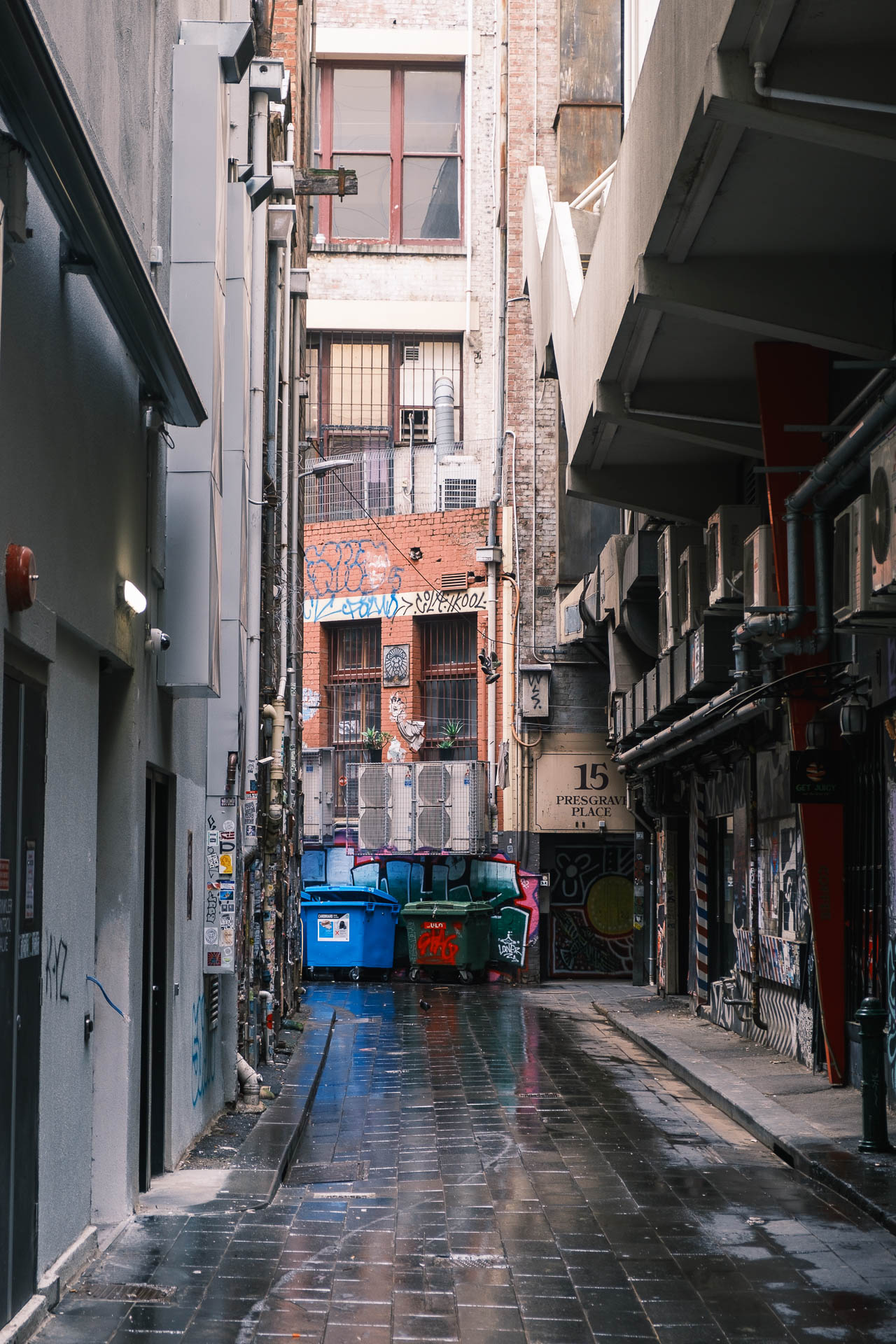
Presgrave Place is covered in unique street art. This laneway (off another laneway) is covered in frames and other installation art.
Get in close, and you’ll be surprised by the detail, from tiny people, small messages and tongue-in-cheek references to Banksy.
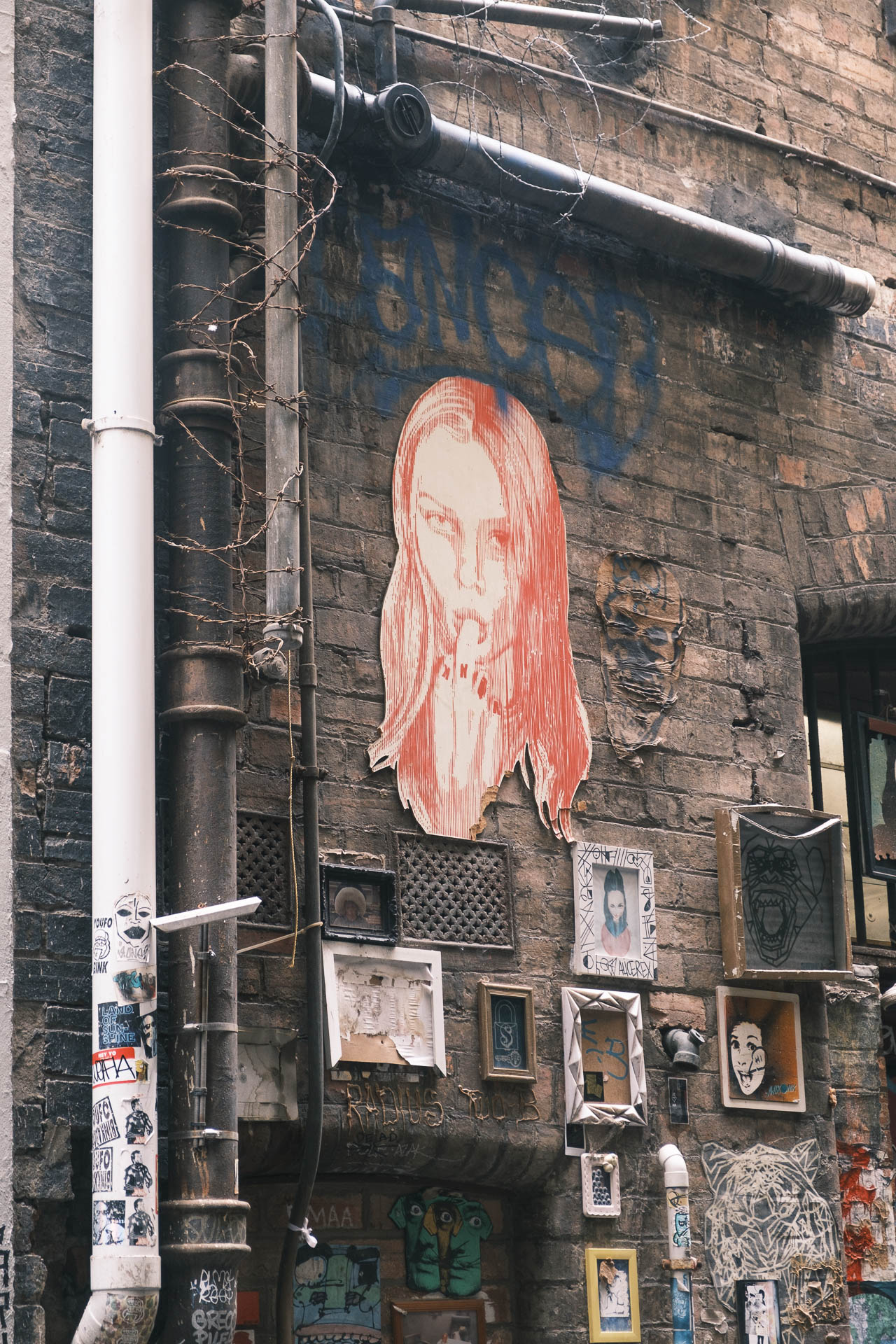
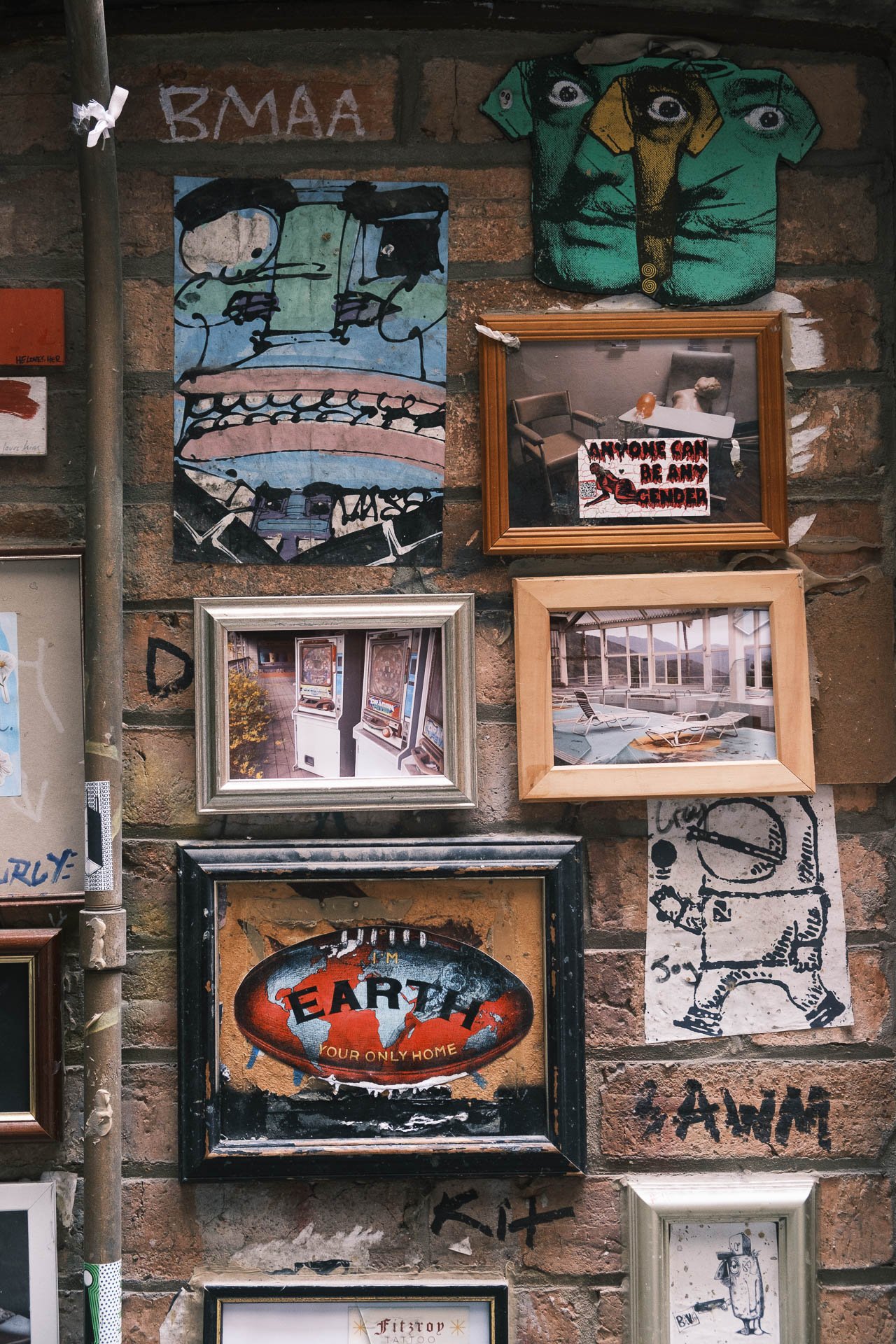
Advertisement
Higson Lane
Flinders Lane, Melbourne
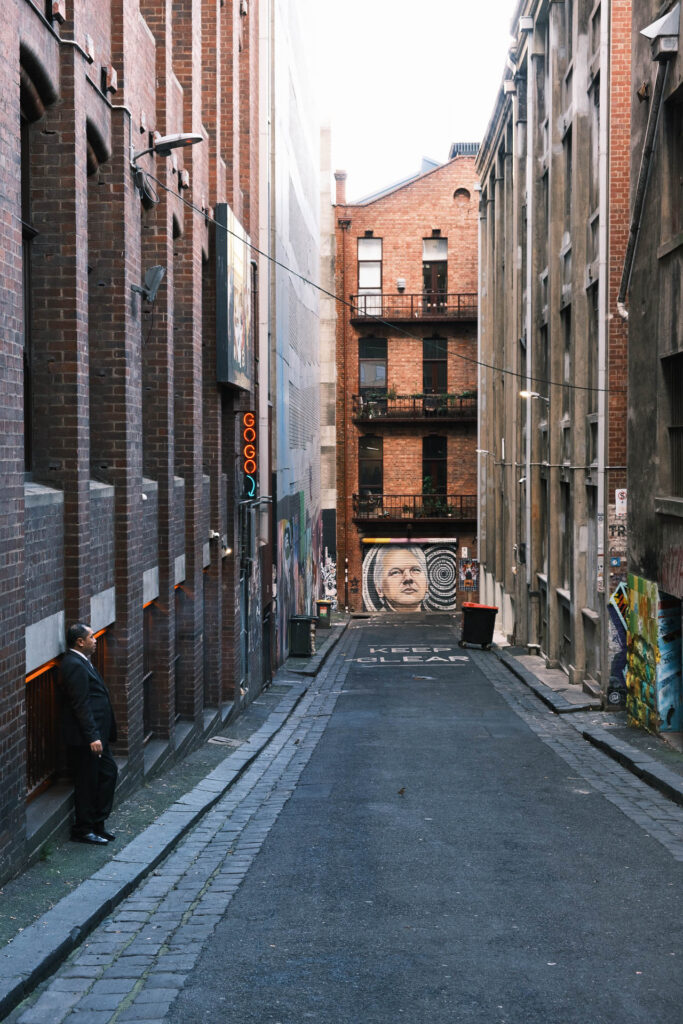
Higson Lane is a small laneway that runs alongside ChinChin, a very popular pan-Asian restaurant. There are several street-art pieces down here. There is only one venue, and that is Go Go Bar – a bar from the same team as Chinchin.
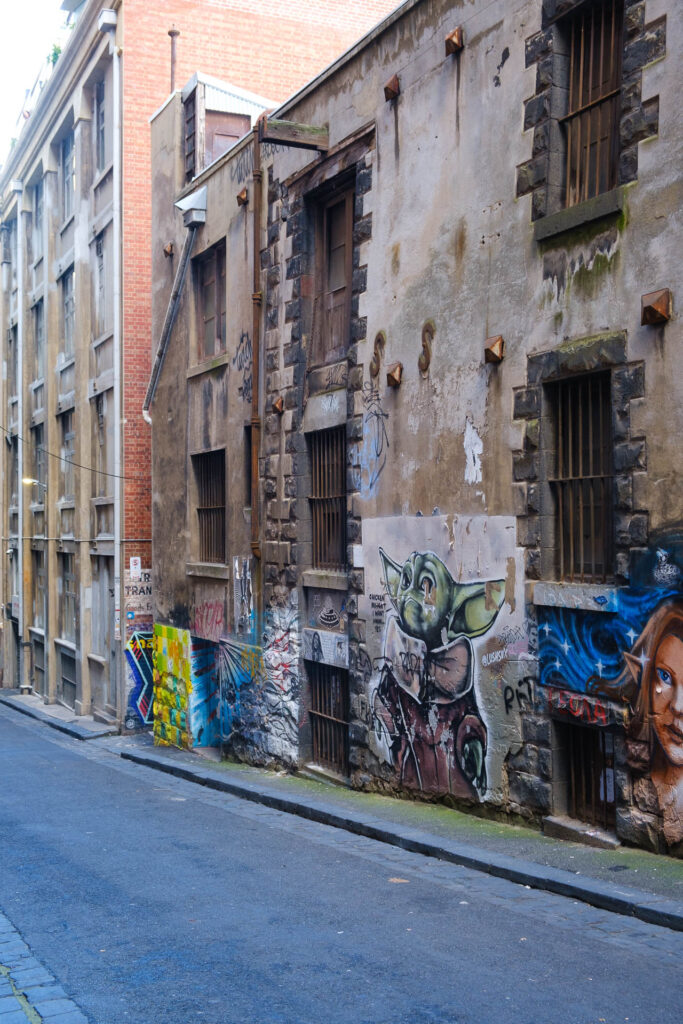
Advertisement
Laneways with Cafes
Enjoy coffee like a local; milk crate seats and all.
Degraves Street
Flinders St, Melbourne
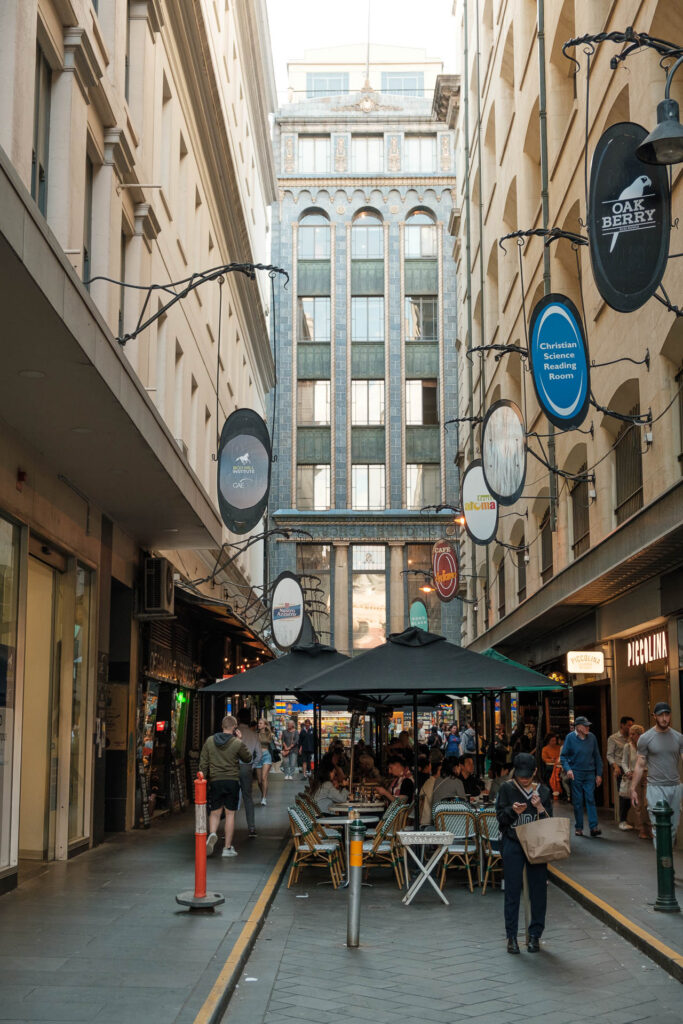
Degraves Street is another Melbourne icon, known and loved mostly for its cafe scene. Visit during the day, and it’s filled with seating and cafe canopies, giving it a strong Parisian feel. It’s named after Charles and William Degraves, two pioneer merchants from Hobart who built a flour mill at the corner of Flinder’s Lane and Degraves Street in 1849.
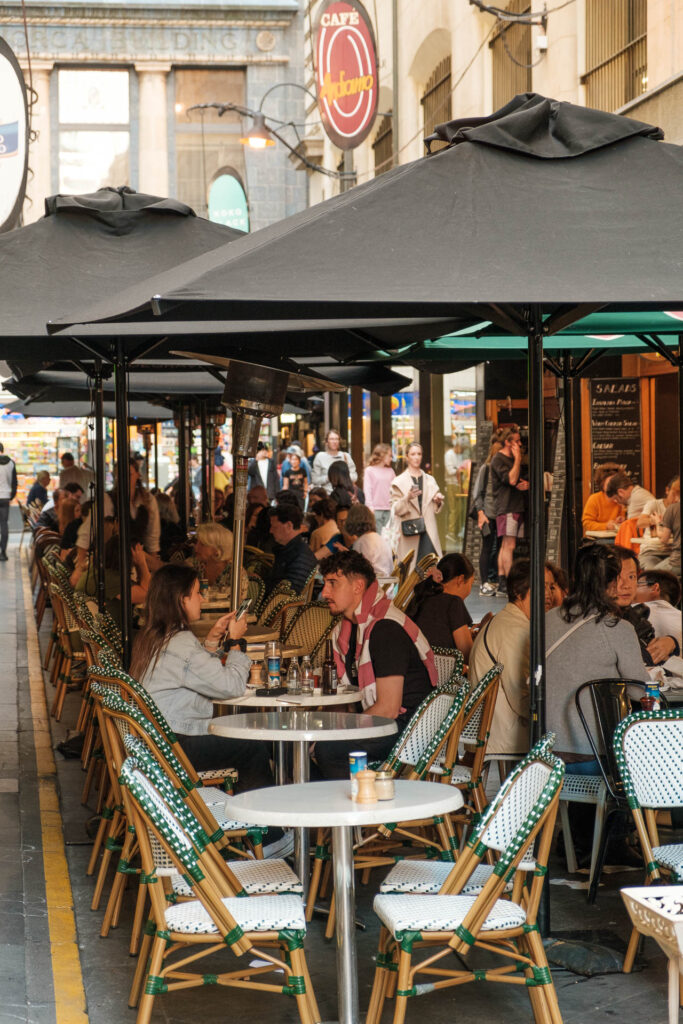
Aside from the cafes, there’s Pidapippo – serving an array of authentic Italian Gelato with Nutella on tap. And Clementine’s, a fine foods and gift store that stocks only Victorian-made products – perfect for finding some Melbourne souvenirs.
Centre Place
Flinders Lane, Melbourne
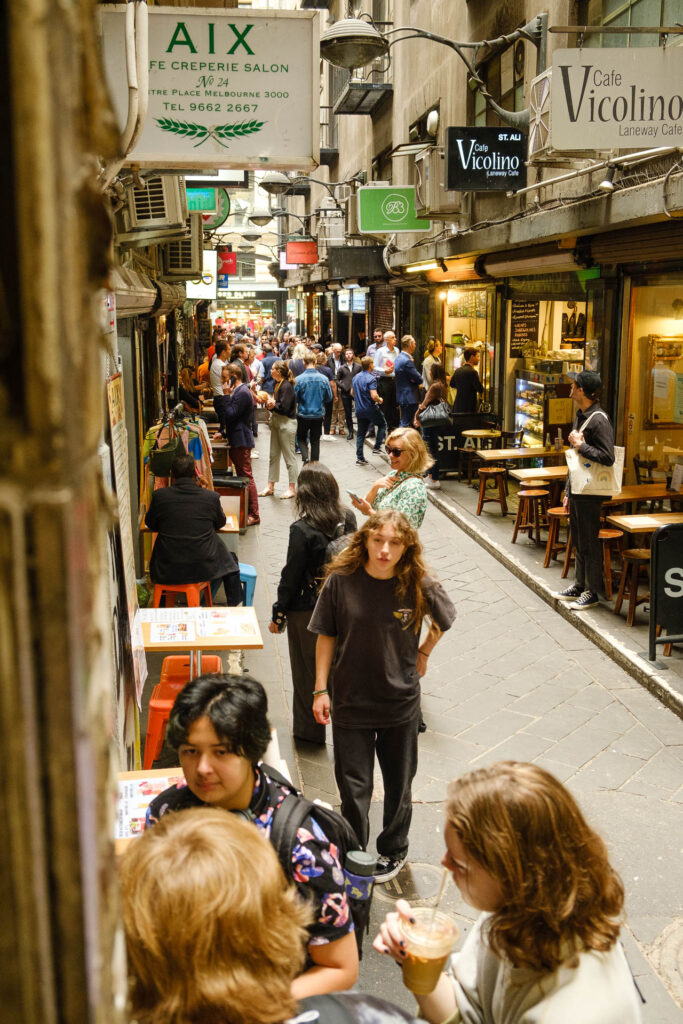
Centre Place was the beginning of Melbourne’s laneway scene and is still its quirkiest; it could easily double as Diagon Alley from Harry Potter.
In the 1980’s, it was the first Melbourne laneway revamped by the city council and is now an integral part of the city’s identity. This dark and narrow laneway is filled with cafes – serving baguettes, dumplings, soups, and smoothies.
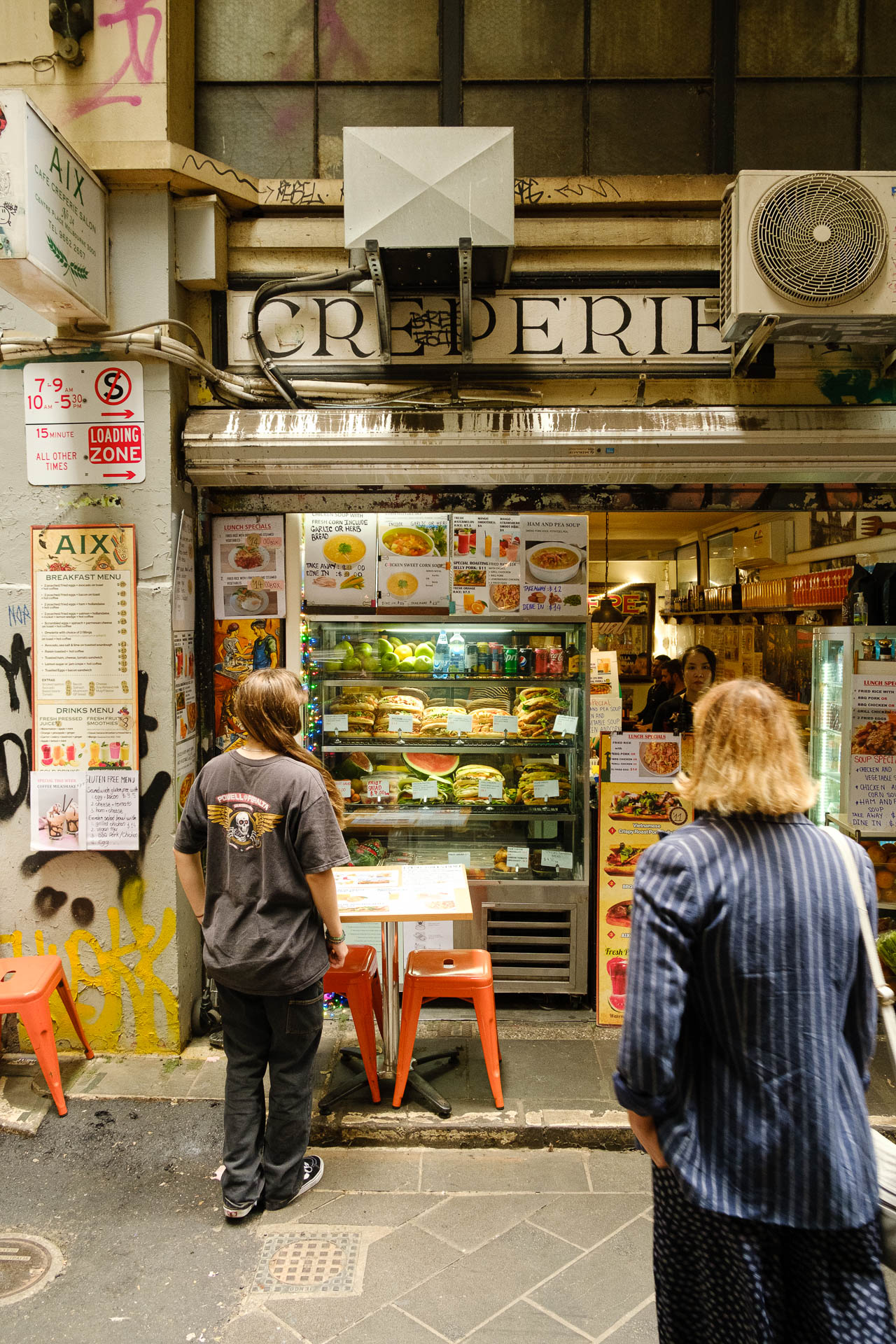
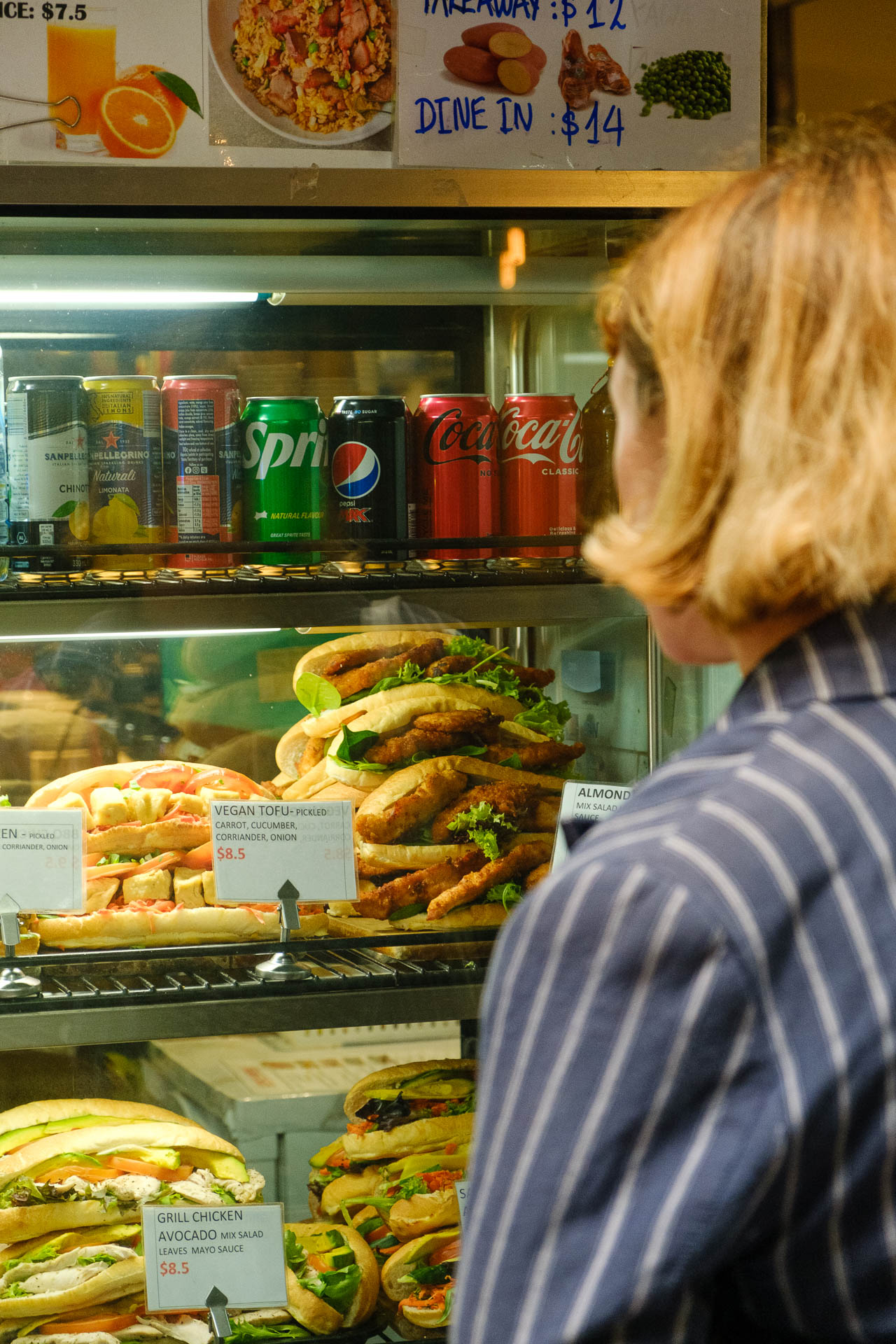
Grab a bite and pull up a milk crate – yes, we’re not kidding – and watch the world go by. There might even be a busker to play you some tunes.
Advertisement
Block Place
Block Arcade, Melbourne
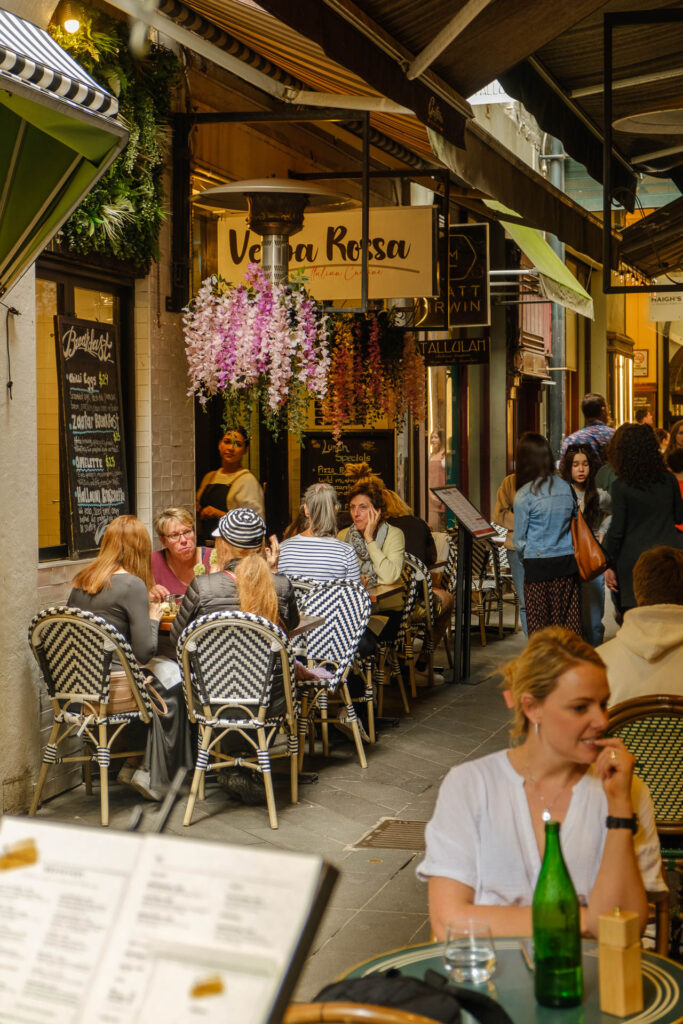
Block Place is a cafe-filled laneway that leads to the heritage-listed Block Arcade.
In the 1890’s it was privately owned, but the council gained permission to install a roof and create an undercover route. This connected The Block Arcade and The Royal Arcade – two of the best arcades in Melbourne.
Guildford Lane
Queen St, Melbourne
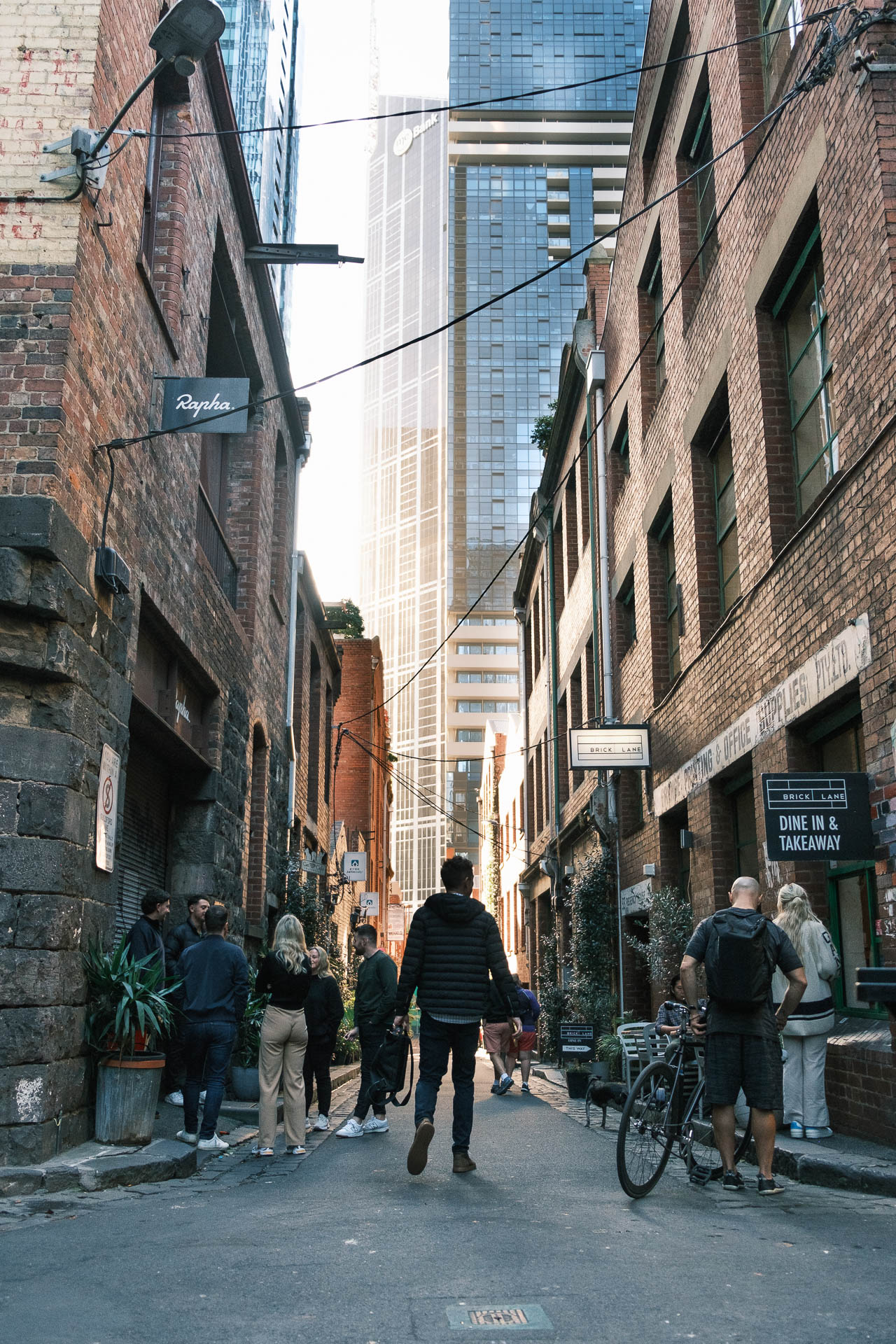
Guildford Lane is a secluded oasis, wedged between 21st-century century apartment towers.
This rare pocket of industrial buildings is part of the city’s ‘Green Your Laneway Campaign’ – which has seen the red brick walls covered in plants and creepers.
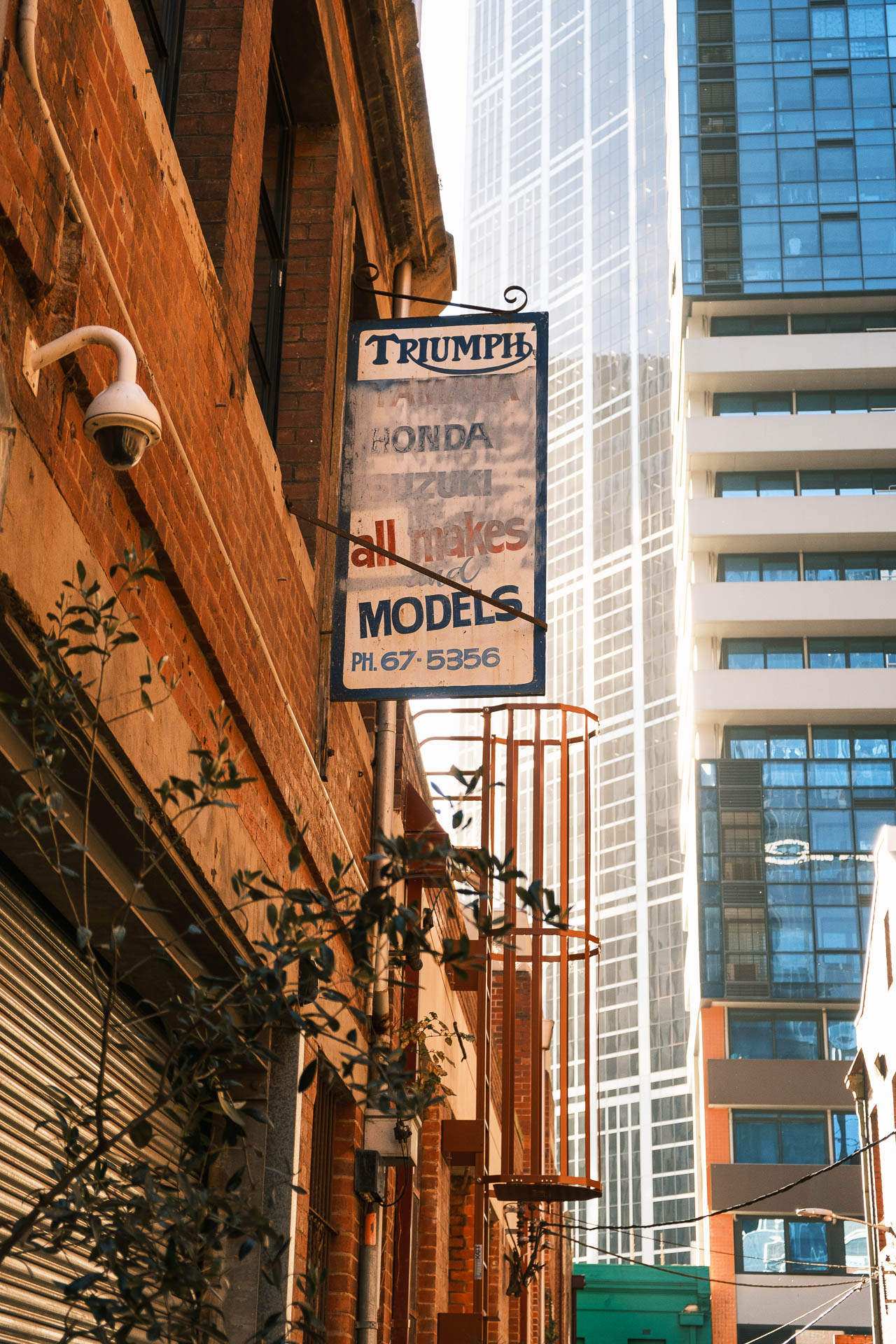
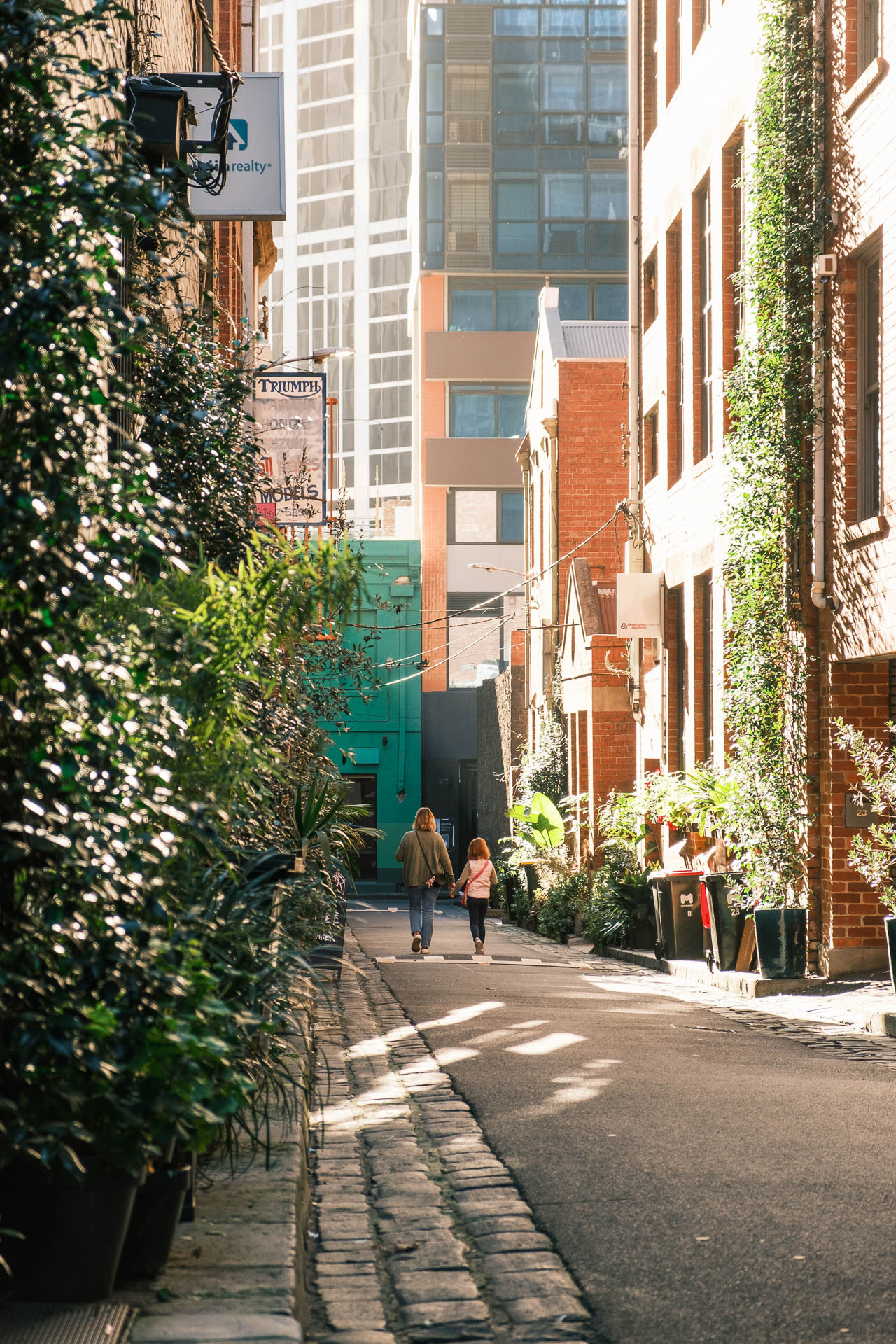
The buildings have mostly been converted into residential apartments, but there are several cafes on street level.
It’s here you’ll also find Australia’s first cat cafe, where for a small admission fee, you can hang out with some friendly felines.
Equitable Place
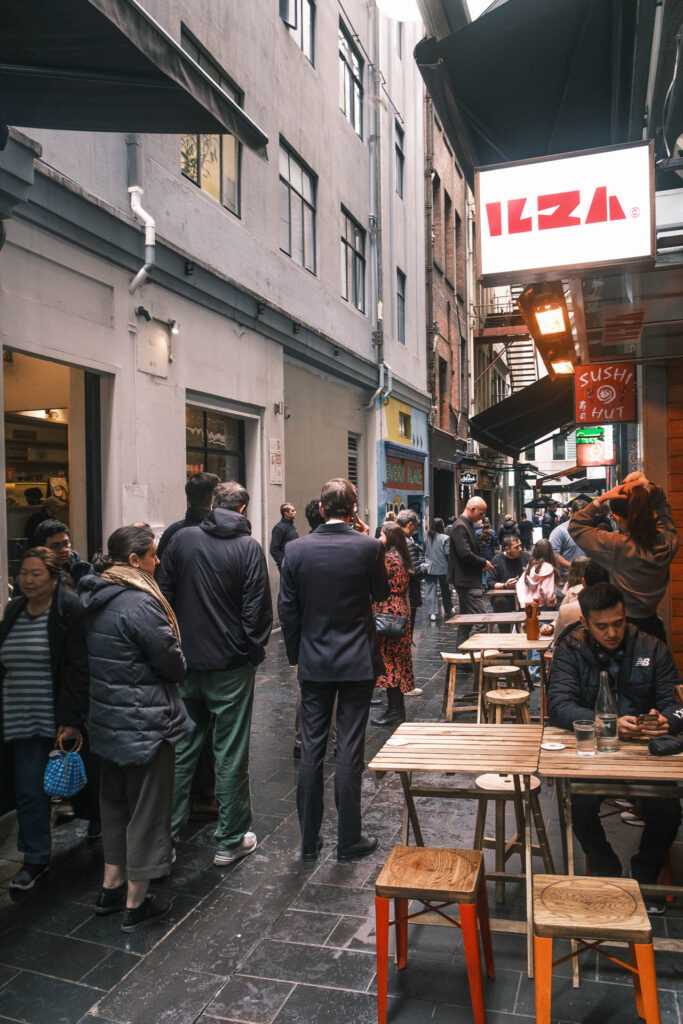
Equitable Place is full of cafes and eateries – a popular destination for the lunchtime office crowd. There’s a hole-in-the-wall Mork Chocolate, serving coffee and their signature hot chocolate. Equitable Place is just off Elizabeth St, so it’s easy to visit.
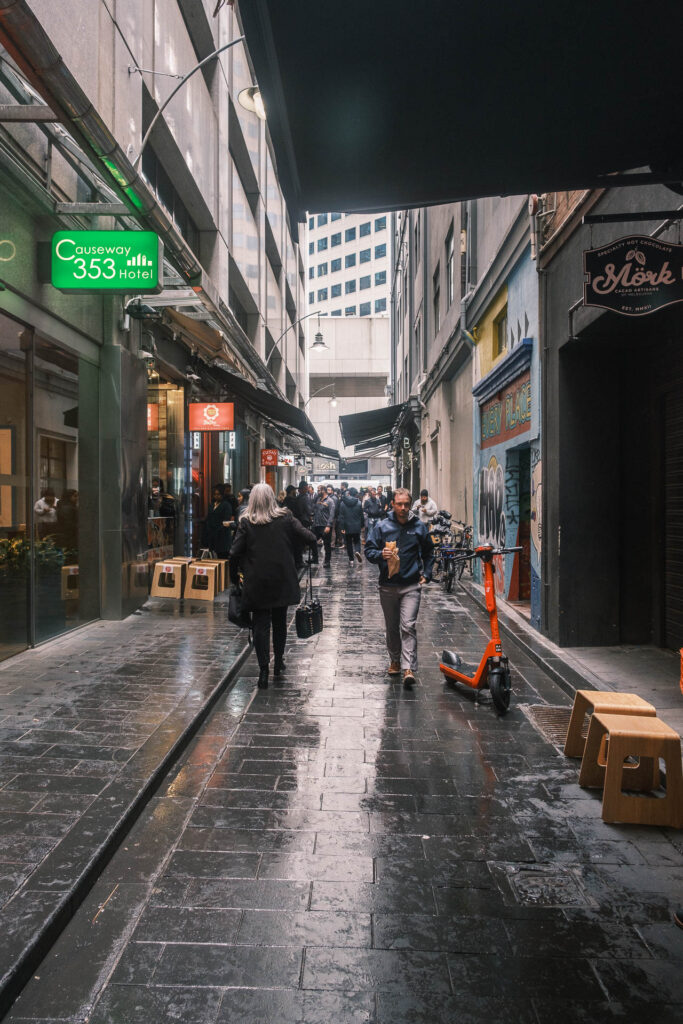
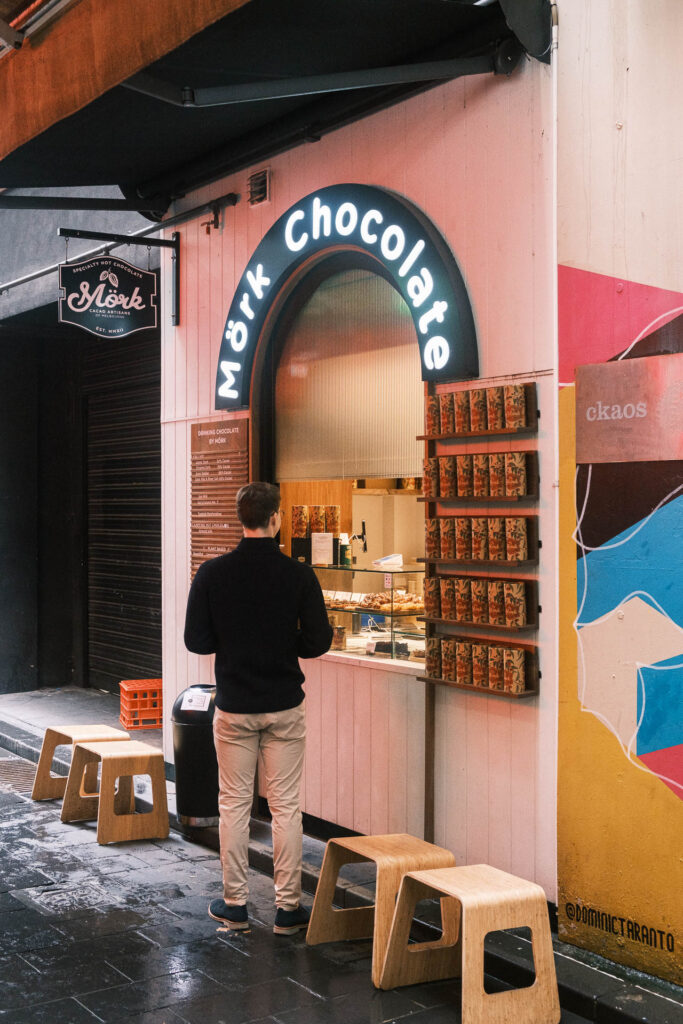
Rankins Lane
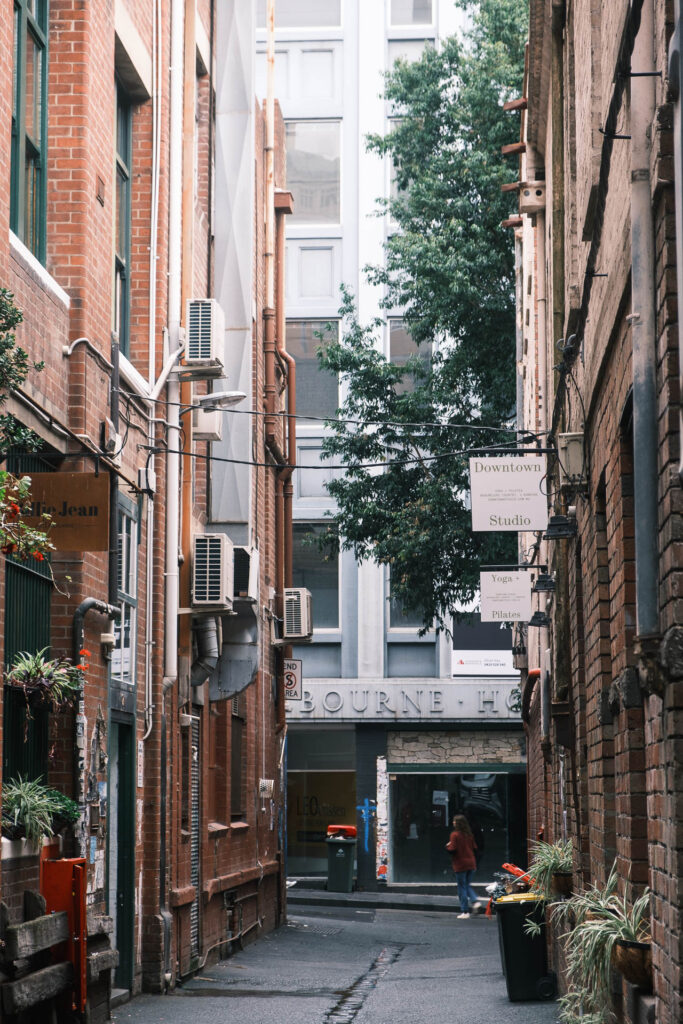
Ranklins Lane features old red brick buildings and lots of leafy greens. There are several small businesses to be found down here – including Manchester Press, a somewhat surprisingly large cafe.
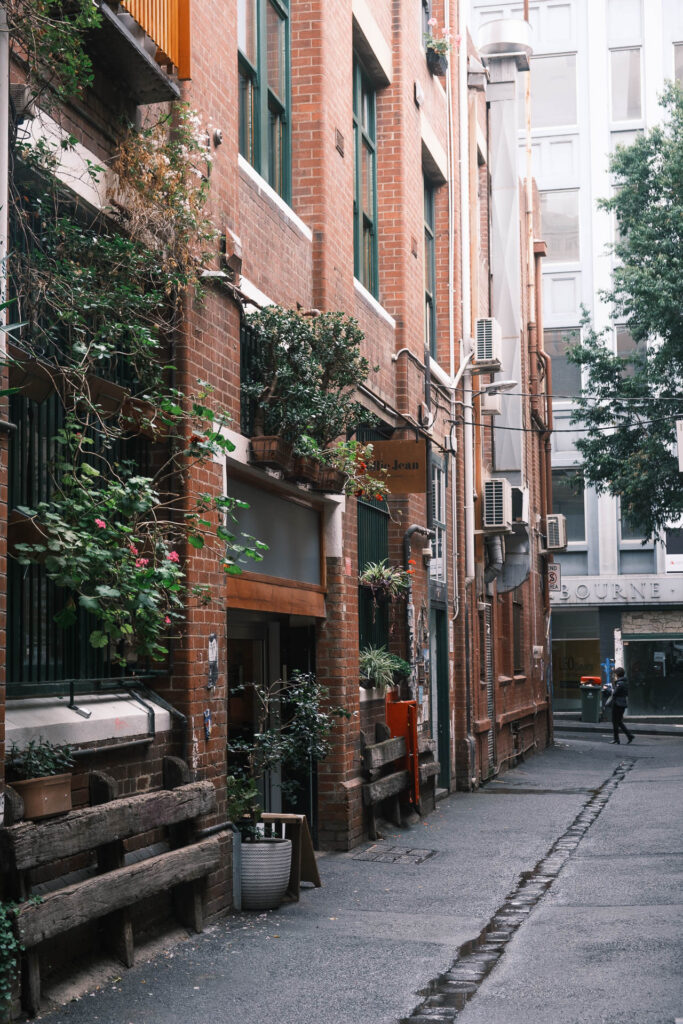
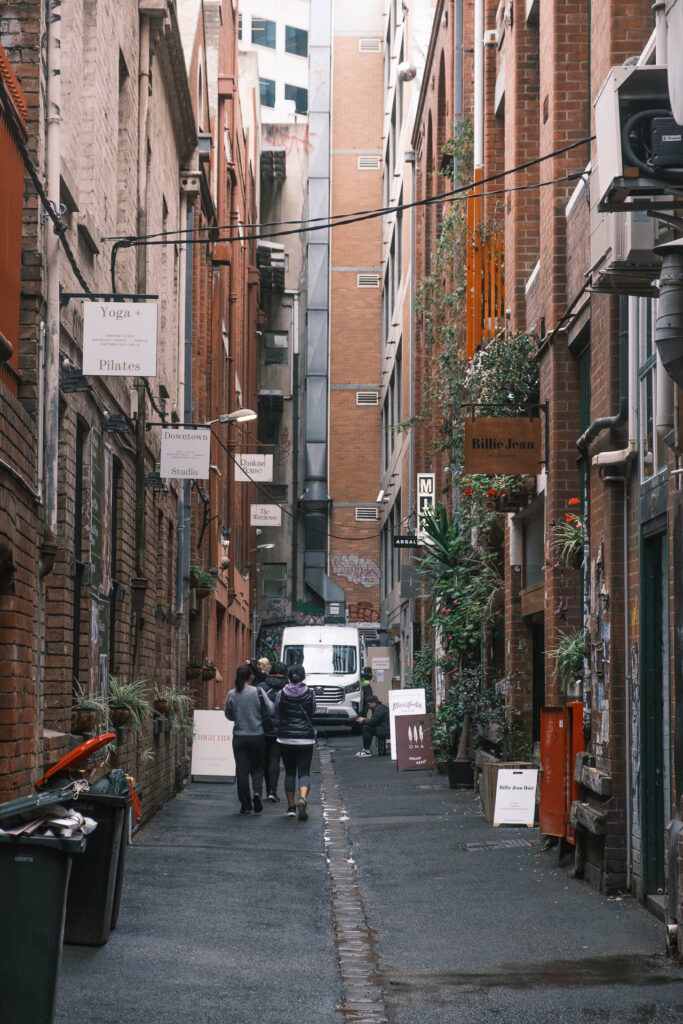
Somerset Place
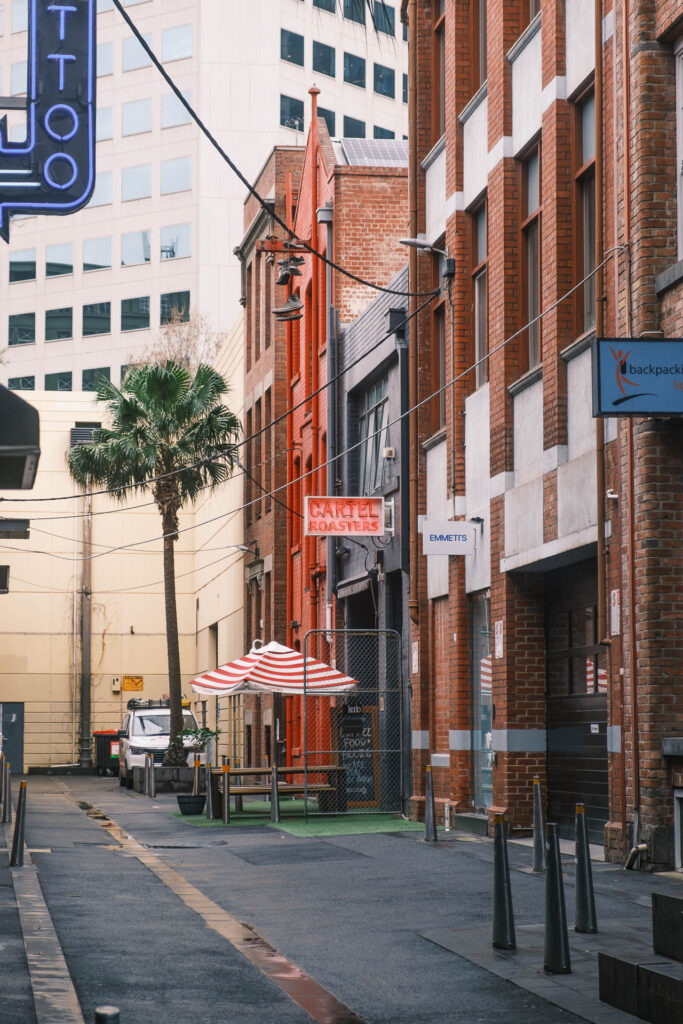
Somerset Place is a wider laneway and home to Cartel Coffee. There are a few more small businesses down here, but nothing overly notable.
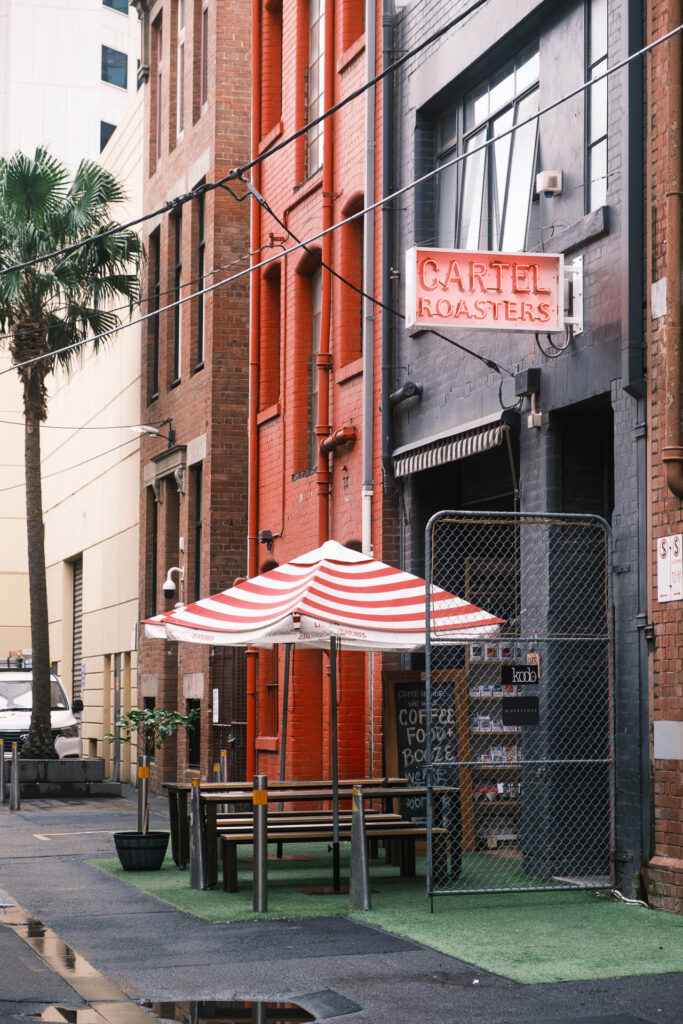
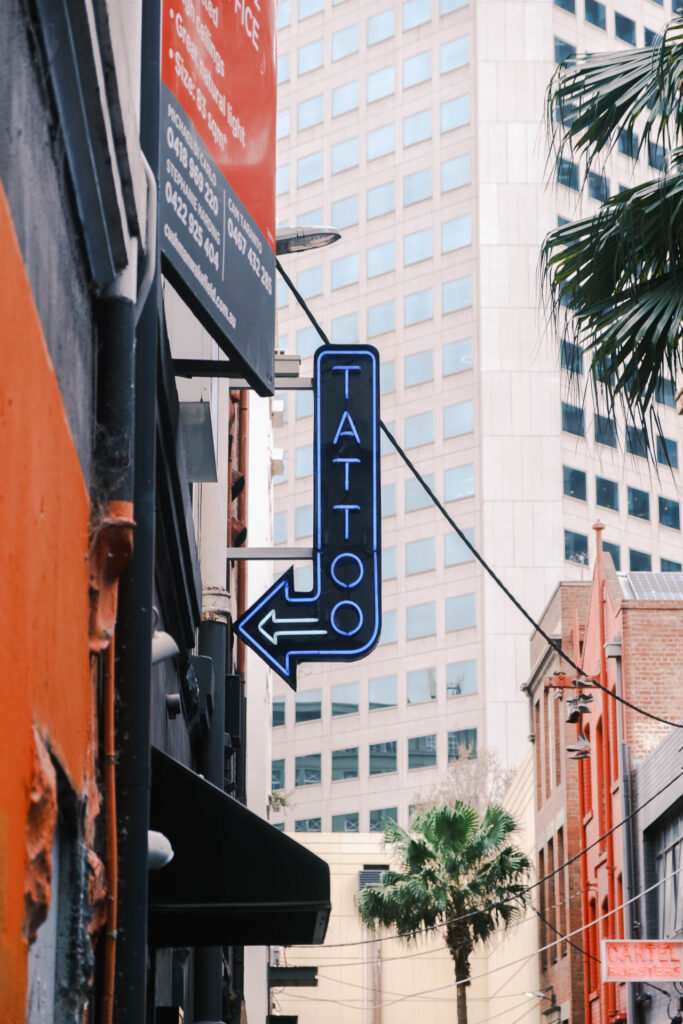
Laneways for Dining
So many restaurants can be found down Melbourne laneways. The following laneways have some great dining options.
Advertisement
Hardware Lane
Little Bourke St, Melbourne
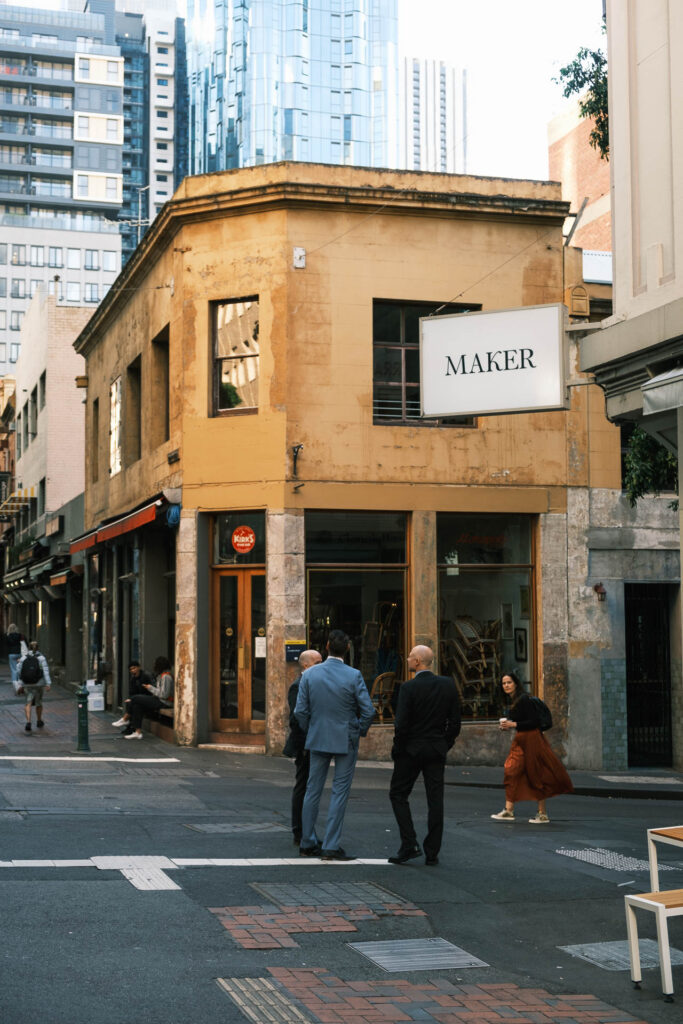
Hardware Lane spans from Bourke Street to Little Lonsdale Street (that’s long!) and is a nightlife hot spot.
The land was formerly occupied by Kirk’s Horse Bazaar, an auction house that once sold hundreds of horses a week.
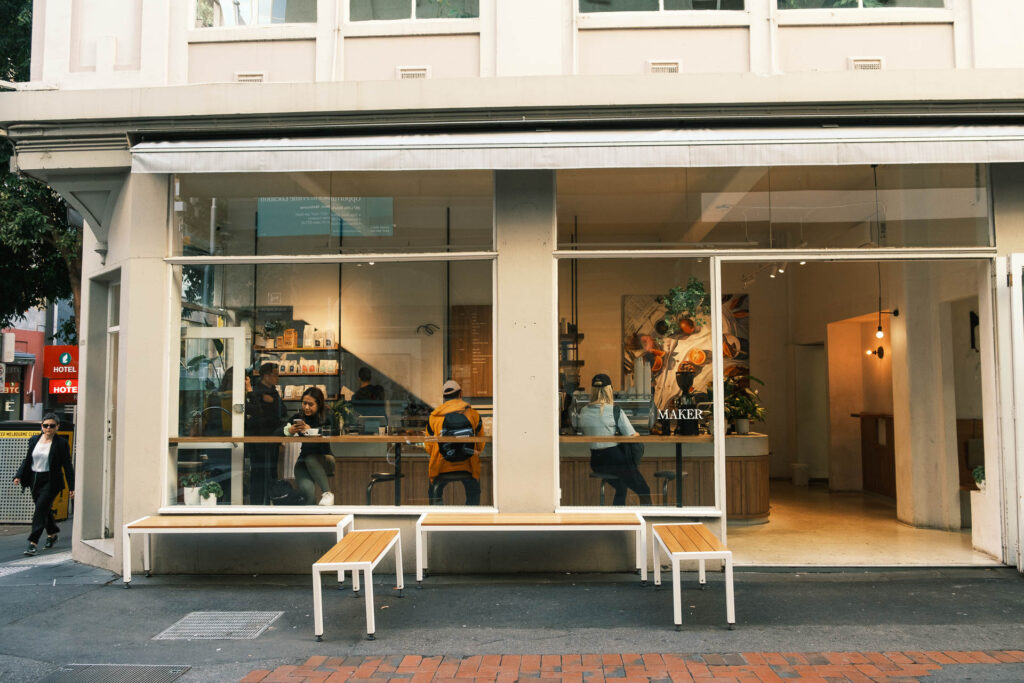
With its unique red pavement, its strong European feel is further strengthened by its many Italian and Spanish venues.
Most restaurants will have a spruiker out front, doing their best to win your service. Feel free to haggle with them to get a better deal, or avoid it entirely and research your destination before you go.
Crossley Street
Bourke St, Melbourne
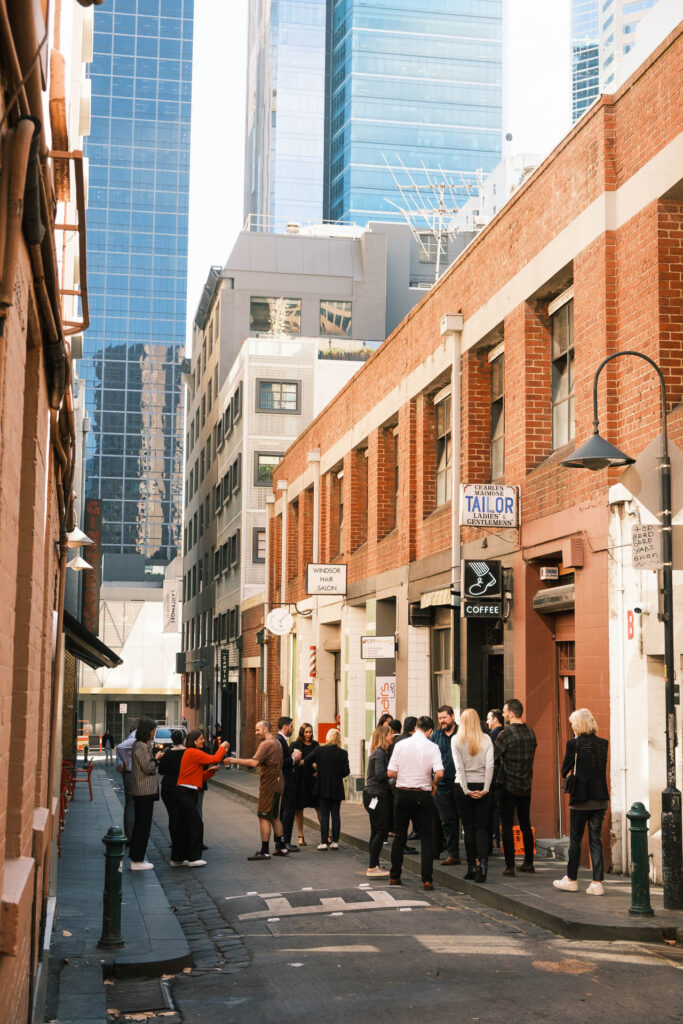
Crossley Street is better known as the corner of Pellegrini’s. This old-school Italian cafeteria is said to have welcomed the first Espresso machine to Melbourne in 1954, the start of Melbourne’s coffee craze.
Little has changed since the cafe opened in 1954, and the decor and style of menu remain old-school; it’s a local favourite for a quick bite.
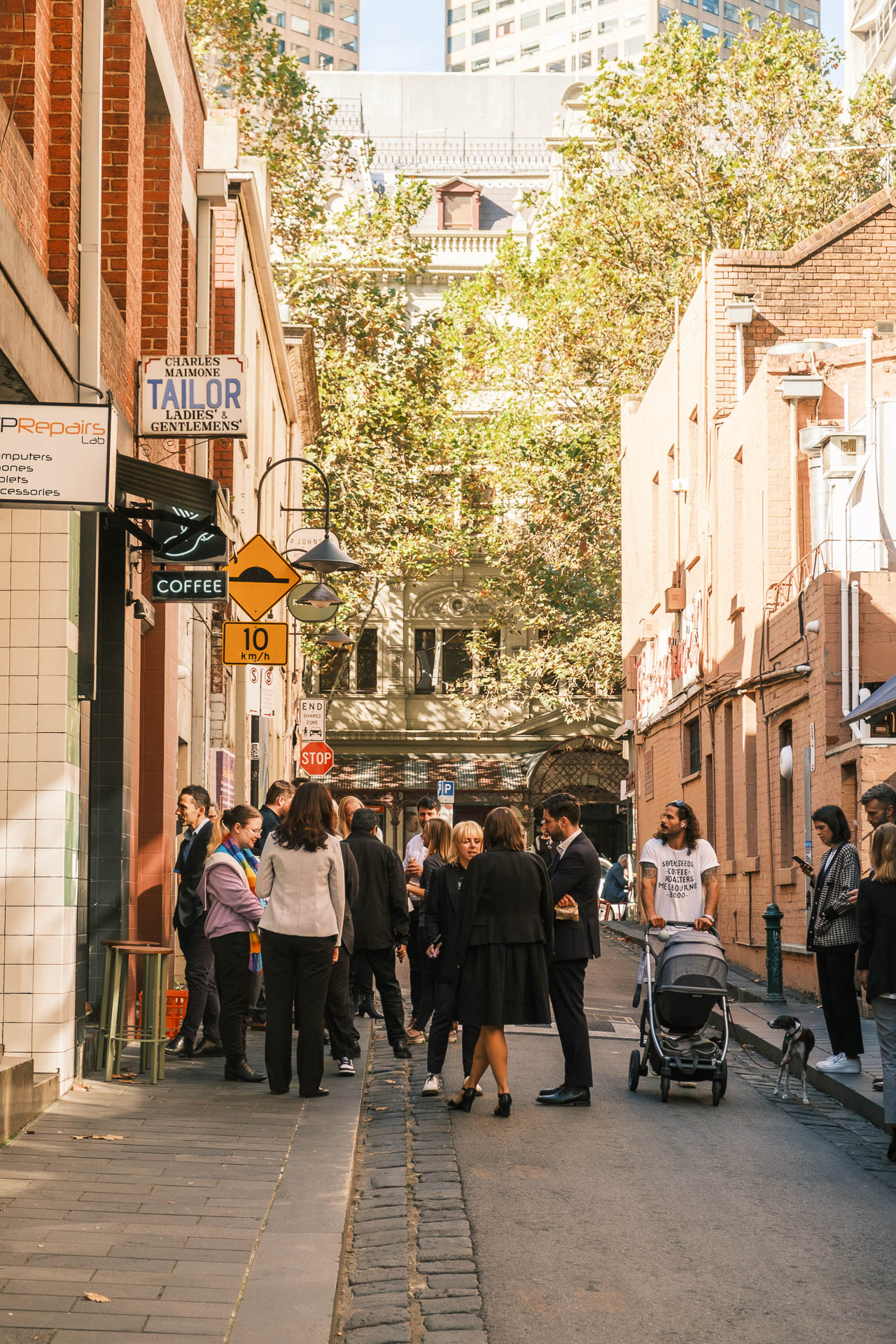
Crossley Street was previously named Romeo Lane, and part of the red light district, while local lore says it was also home to an opium den.
Market Lane
Little Bourke St, Melbourne
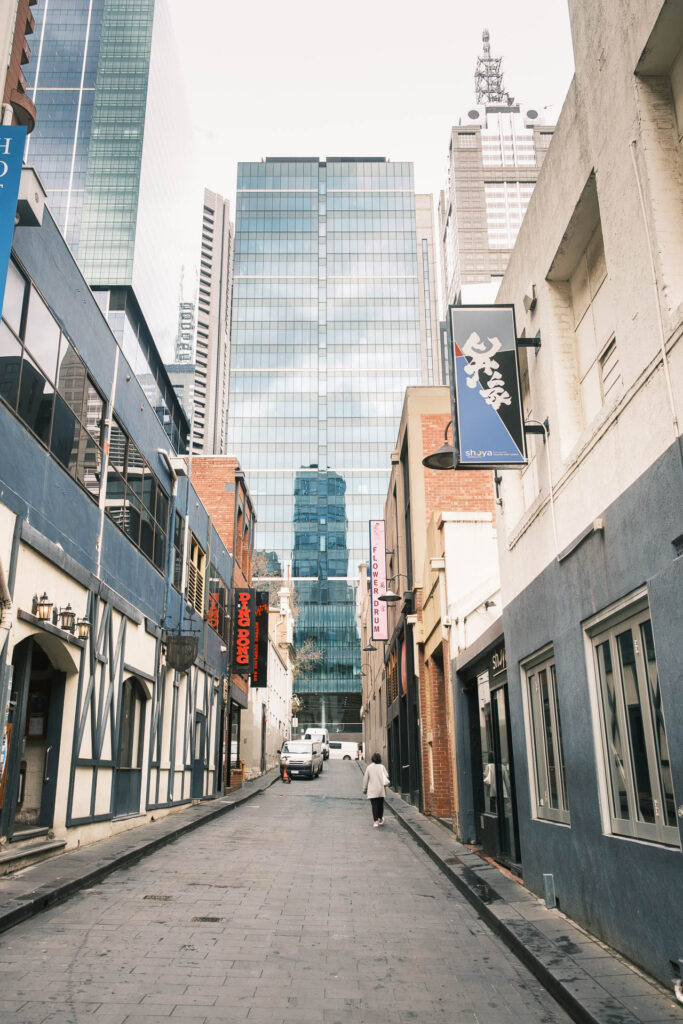
Market Lane will take you from the wide road of Bourke Street, and into the jostling, tight laneways of Chinatown.
This laneway has several restaurants, including Hutong, a widely regarded dumpling house. You can watch the cooks making their own dumplings; a good way to guarantee your dumplings don’t come from the freezer.
There is also Hofbräuhaus, a slightly out-of-place German eating house – known for its giant beers and huge sausages. Every Octoberfest, this place gets wild.
If it’s fine dining you want, then there is Flowerdrum, an award-winning Cantonese restaurant often booked out months in advance.
Advertisement
Russell Place
Bourke St, Melbourne
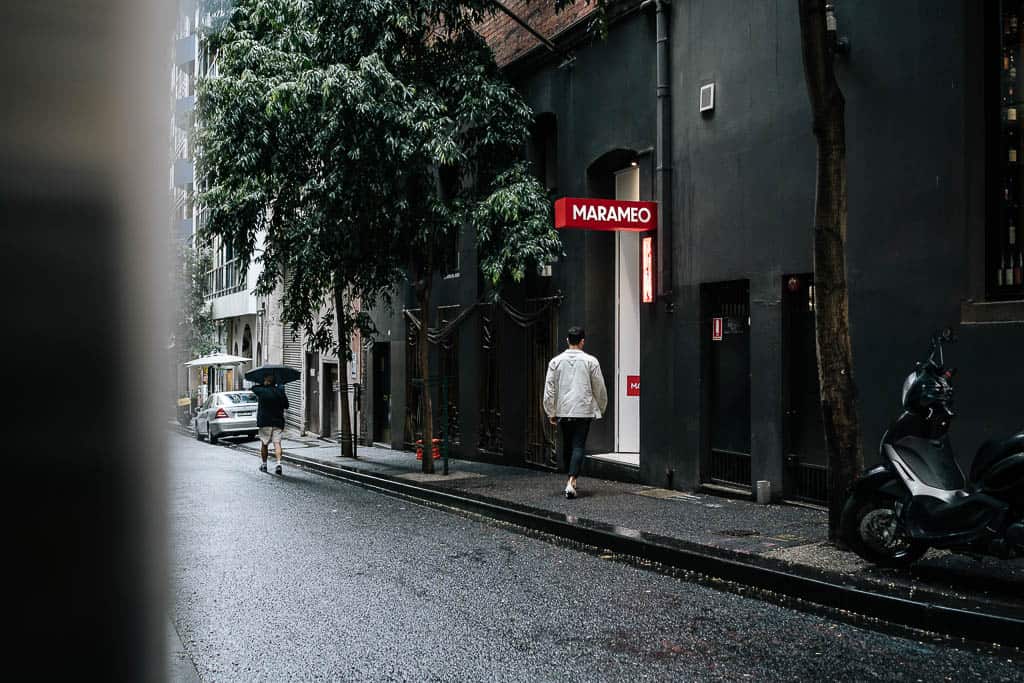
In 1890, shopkeeper and resident of Russell Place, Charles Elliot penned a letter to the council requesting that they install street lighting as well as a greater police presence.
He complained of many men that would urinate in the laneway, sometimes even 20 at a time. Thankfully that doesn’t happen today (or at least not as much.)
Russell Place now houses several hidden bars and restaurants, including Gin Palace and the late-night Bar Ampere.
Manchester Lane
Flinders Lane, Melbourne
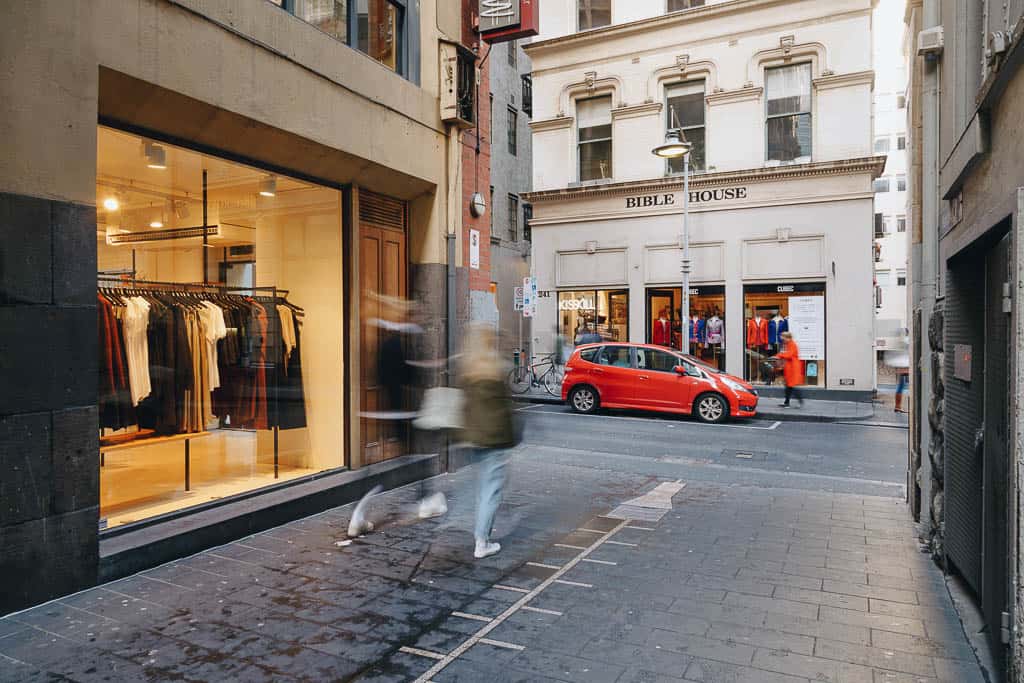
Manchester Lane was once home to the manchester and linen trade of Melbourne. In acknowledgment of its history, the council created a giant zip pattern in the pavement. The old factory buildings have been converted into apartment buildings.
Oliver Lane
Flinders St, Melborne
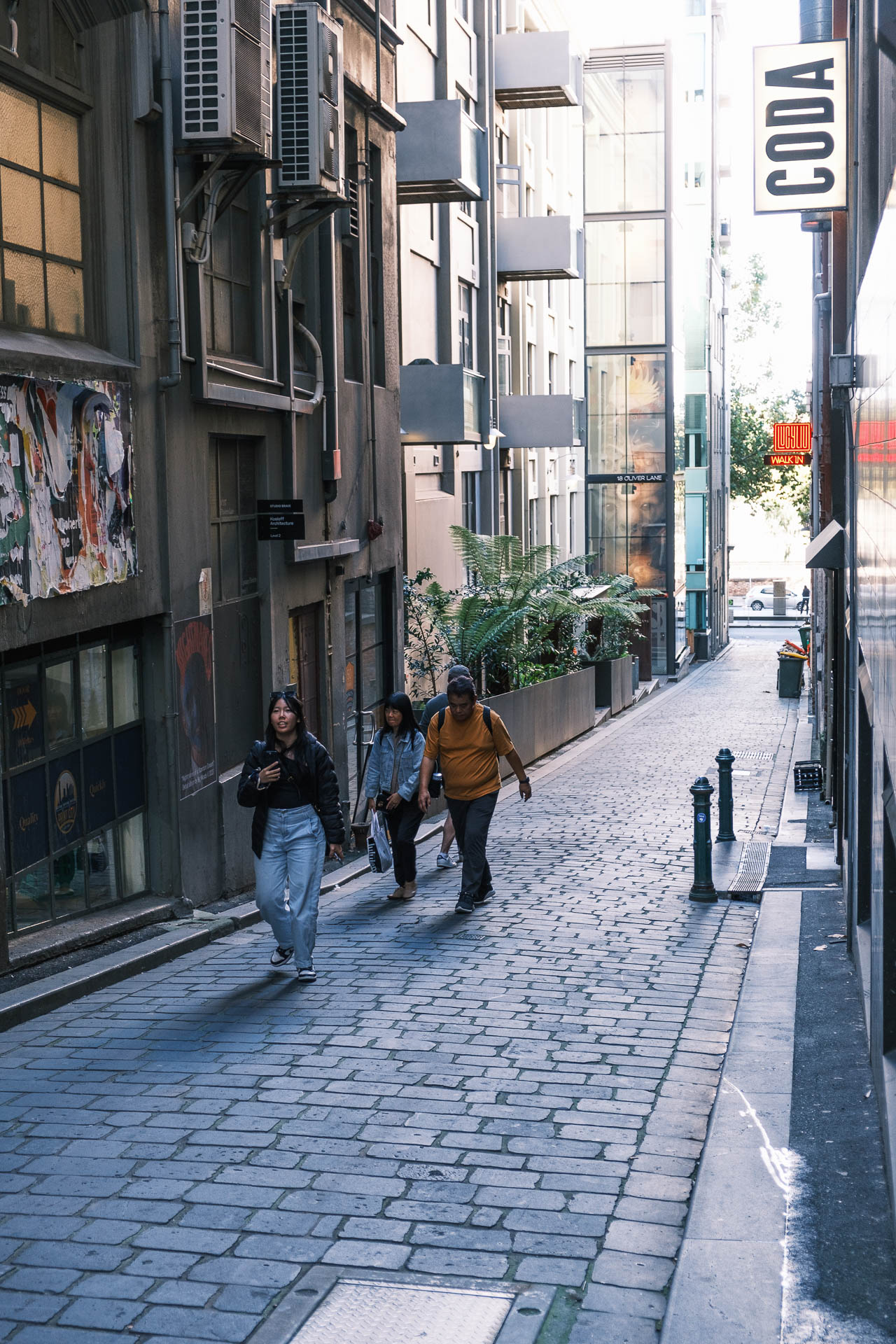
Olive Lane is an overlooked laneway, especially when the nearby Hosier Lane takes all the attention.
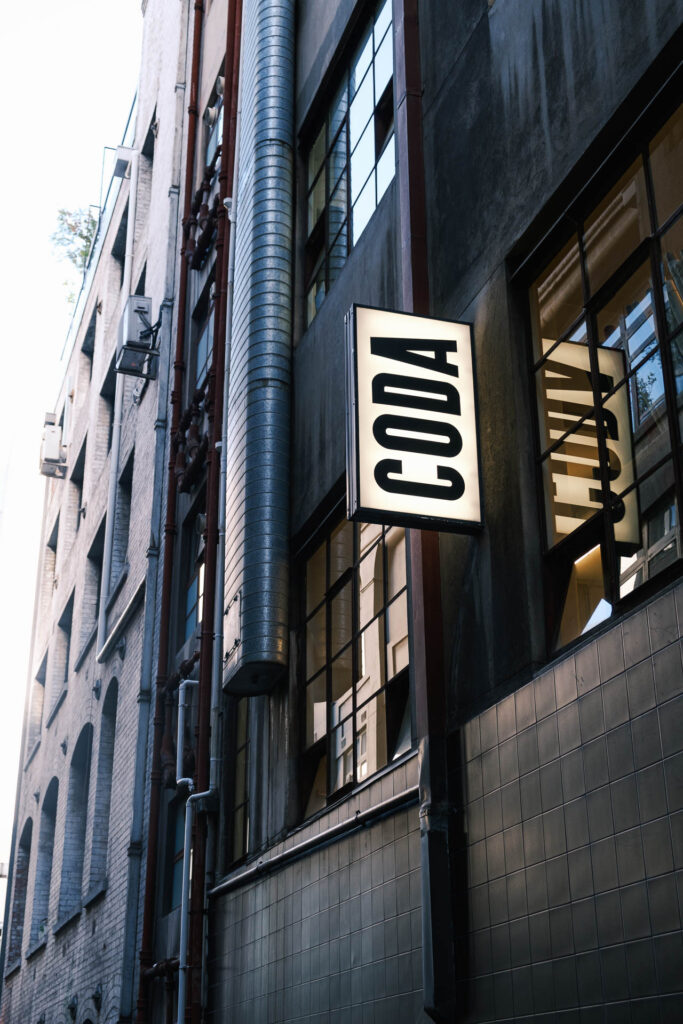
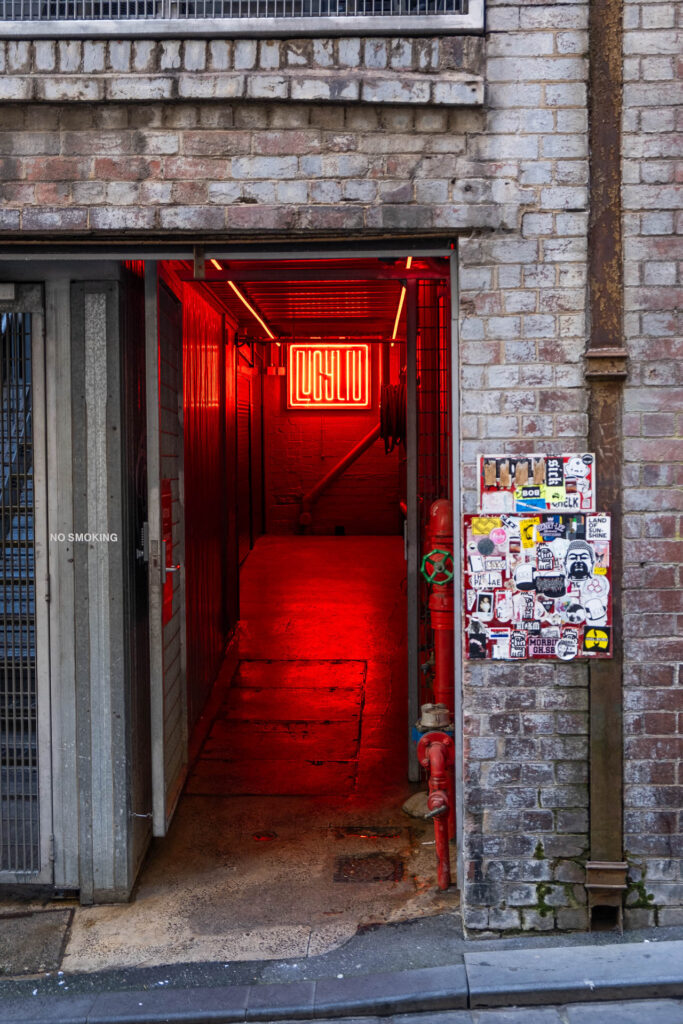
But it’s here you’ll find Lucy Liu, a pan-Asian restaurant and bar with a modern fit-out – a similar experience to Chin Chin and Supernormal, both of which are minutes away.
Advertisement
Laneways with Nightlife
Cocktail bars and pizza joints. These laneways know how to party. A good way to experience both is to join this hidden bar tour.
Meyer’s Place
Bourke St, Melbourne
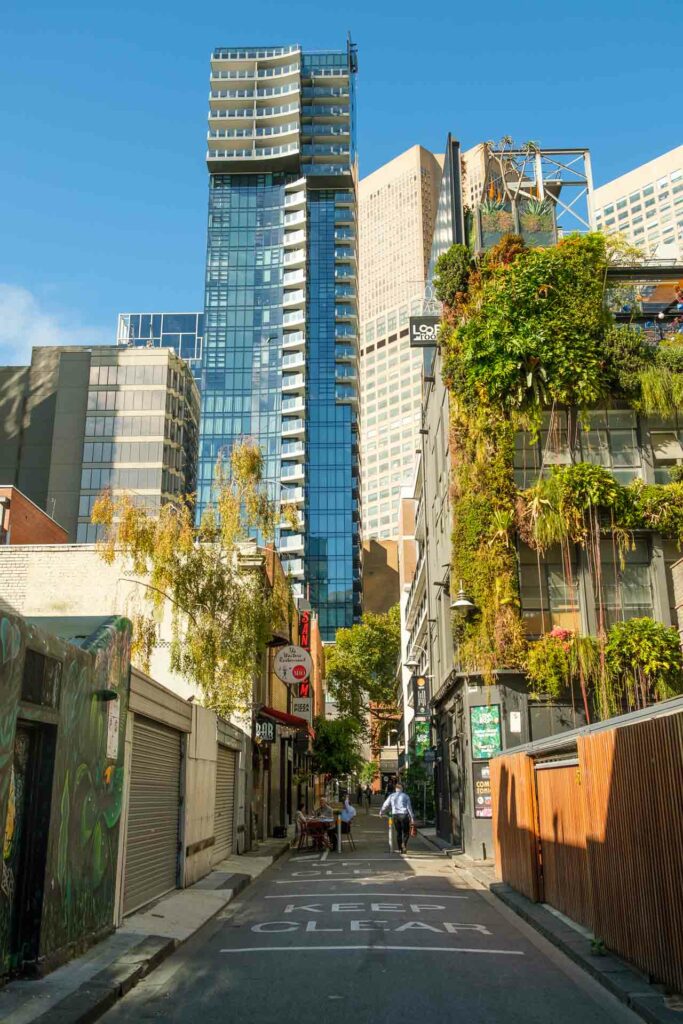
You could visit Meyer’s Place several times and have a completely different experience; very few laneways in Melbourne can pack in this many reputable venues.
Wander to San Telmo, an Argentian steak house with an authentic parrilla charcoal grill. Then grab drinks at Lily Blacks, an art deco cocktail bar serving classic concoctions.
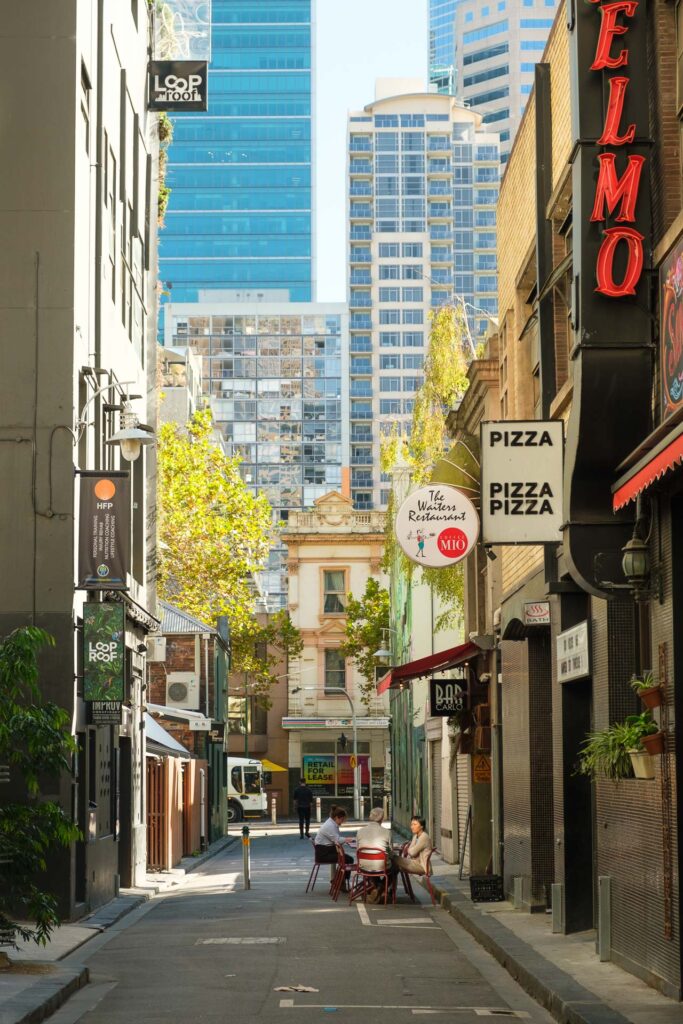
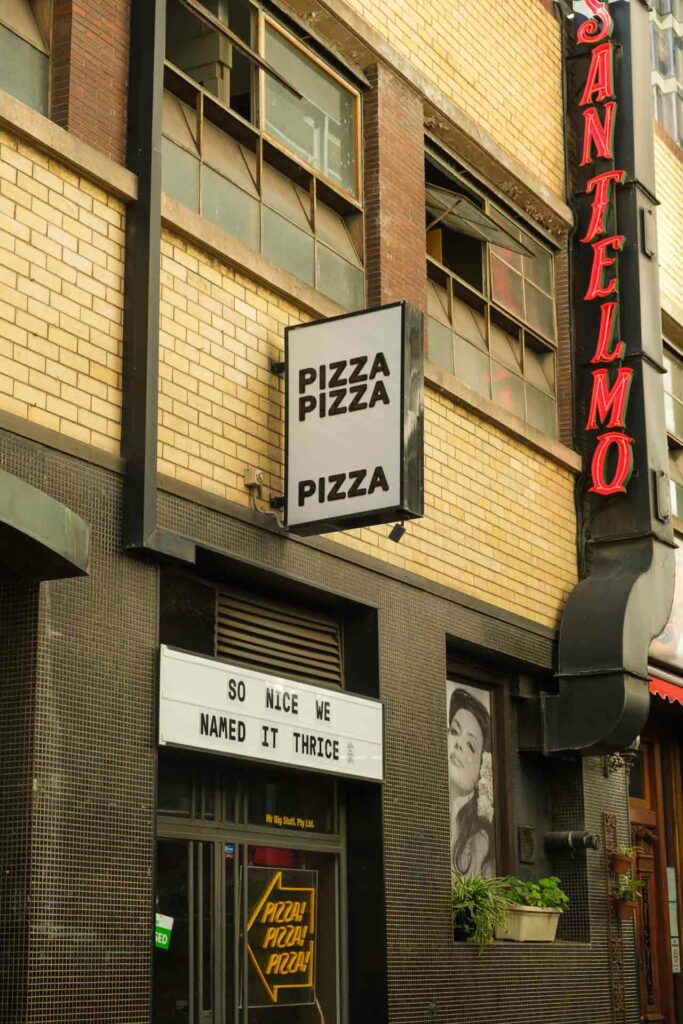
Maybe try Loop Bar, with its two-level rooftop bar. Or grab a slice of New York from Pizza Pizza Pizza – then ask to enter their secret cocktail bar.
Make sure to look up and admire the vertical garden hanging off the side of Loop Bar; Meyer’s Place was one of the first candidates for the council’s ‘Green Laneway’ project.
Tattersalls Lane
Lonsdale St, Melbourne
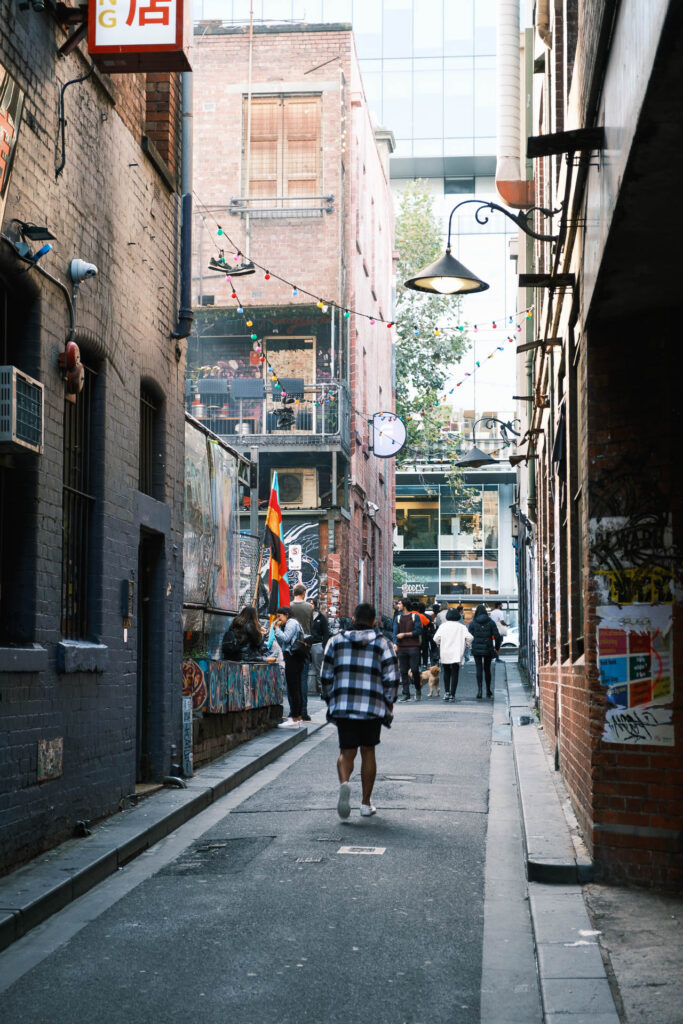
Tattersall’s Lane joins two worlds together; the north end of the city and Chinatown. Walking through this nightlife hub is like teleporting to another dimension.
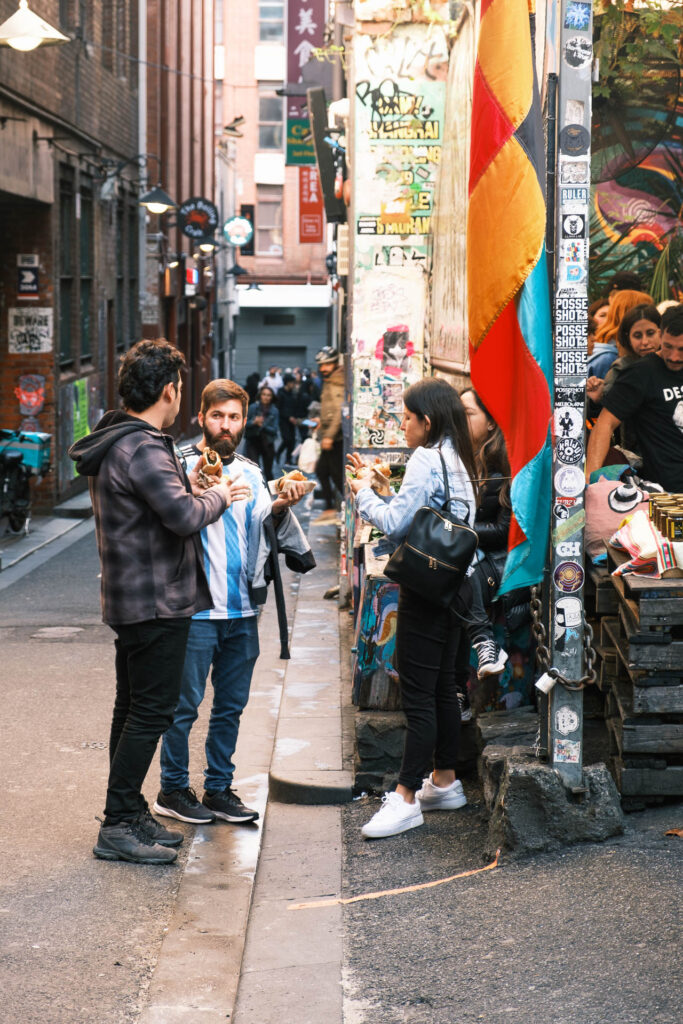
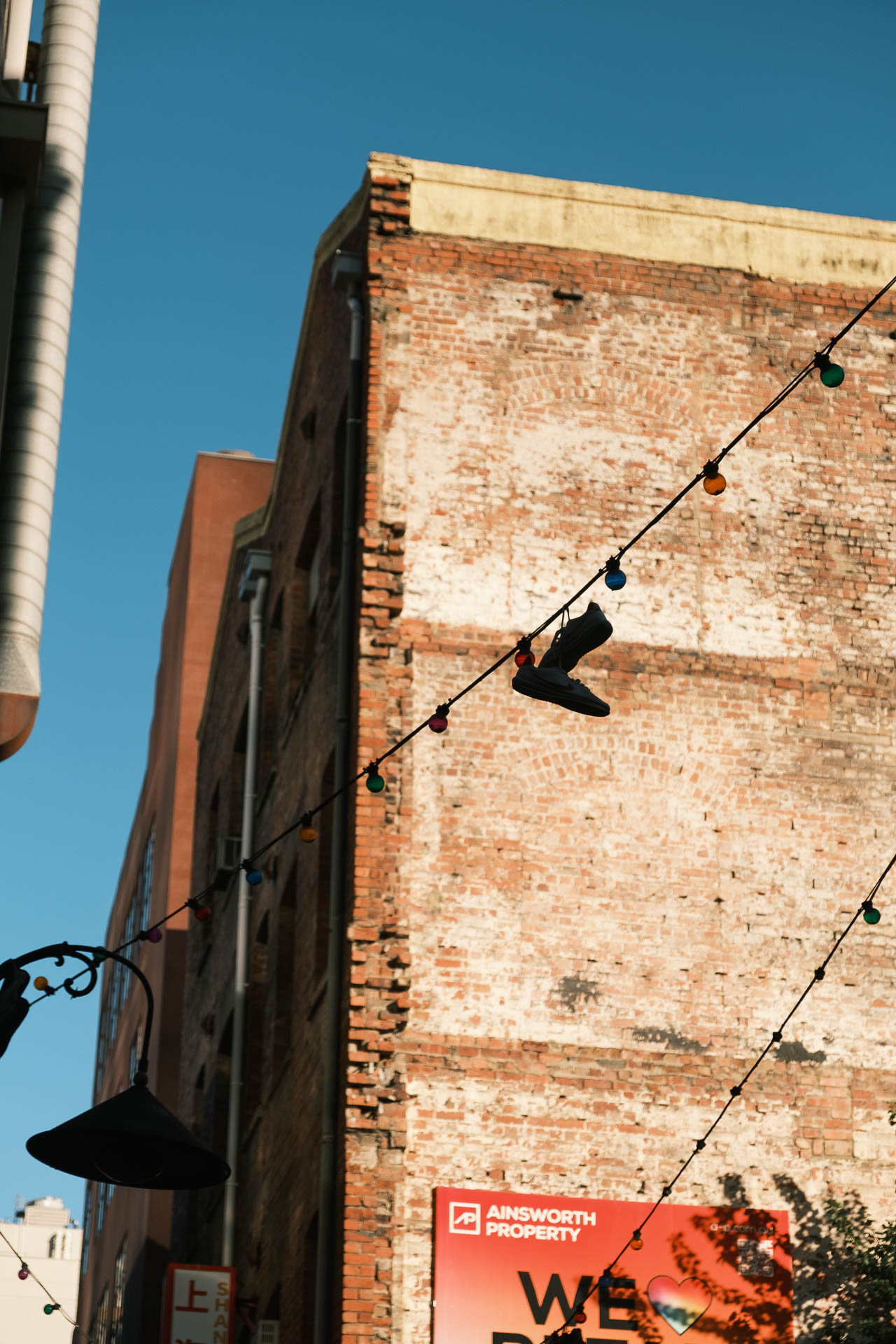
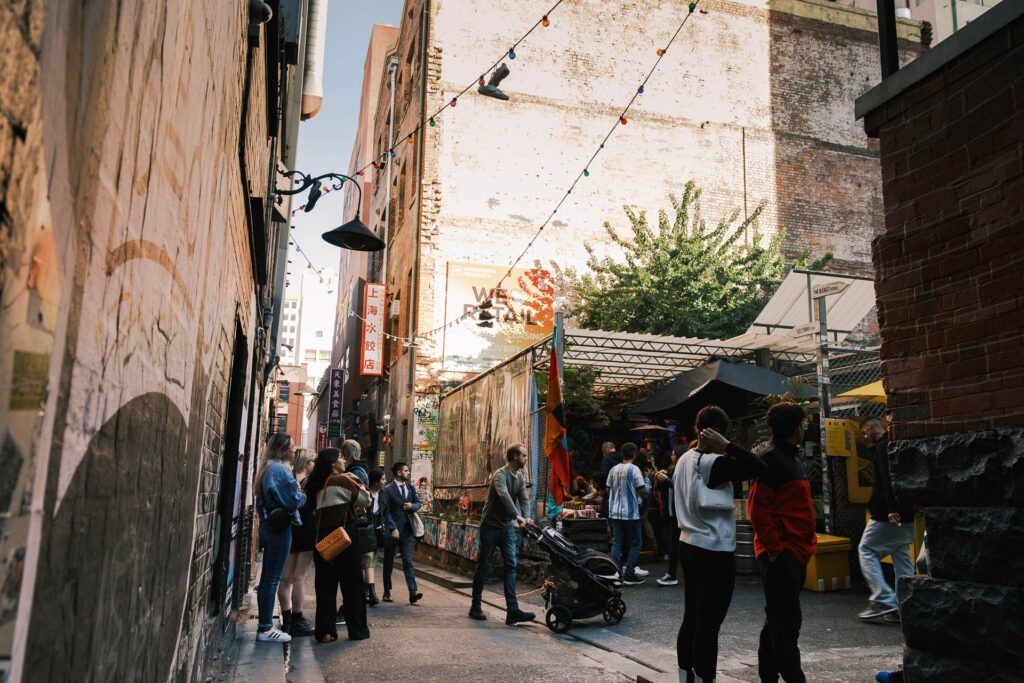
Midway down, you’ll find Section 8, one of Melbourne’s awesome laneway bars that is open 365 days a year. Originally a pop-up bar in an empty car park, it was so popular that it soon became a permanent fixture.
Advertisement
Liverpool Street
Bourke St, Melbourne
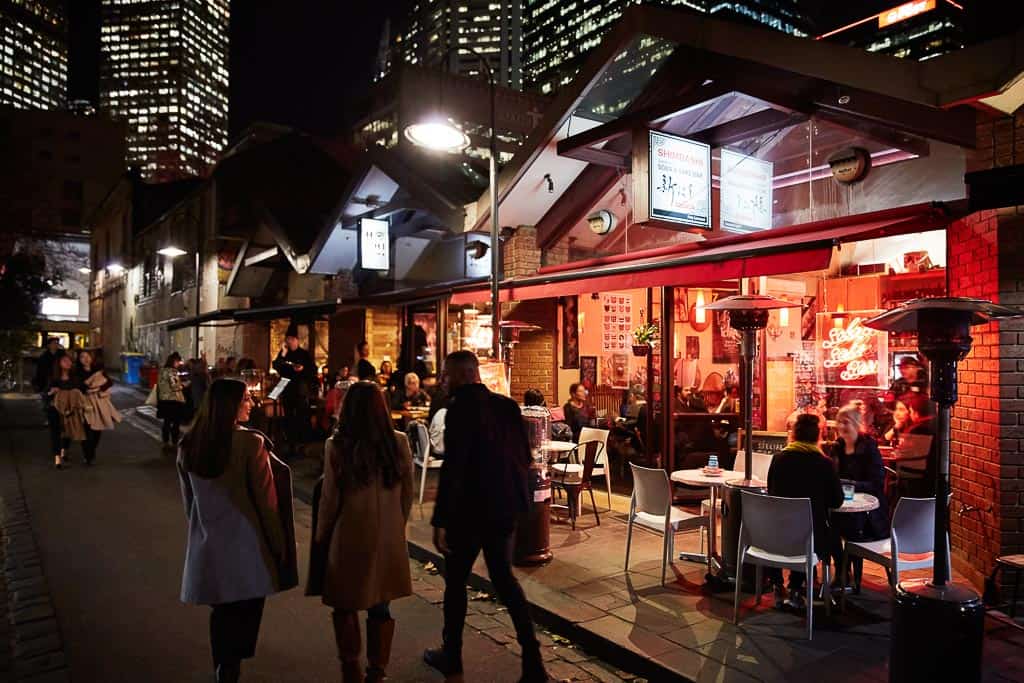
Previously called Juliet Terrace, this laneway was part of the red-light district back in the early 19th century; it’s here that women would sell their trade.
Find the unmarked door with the old bicycle hanging above it. Push it open and head upstairs to New Golden Mountain – an Asian/Australian-inspired cocktail bar.
NGM takes its name from the gold rush of 1851, when Chinese immigrants referred to Victoria as ‘New Gold Mountain.’
Other Laneways
Some more laneways that aren’t super impressive but worth a wander through if you’re in the area.
Niagara Lane
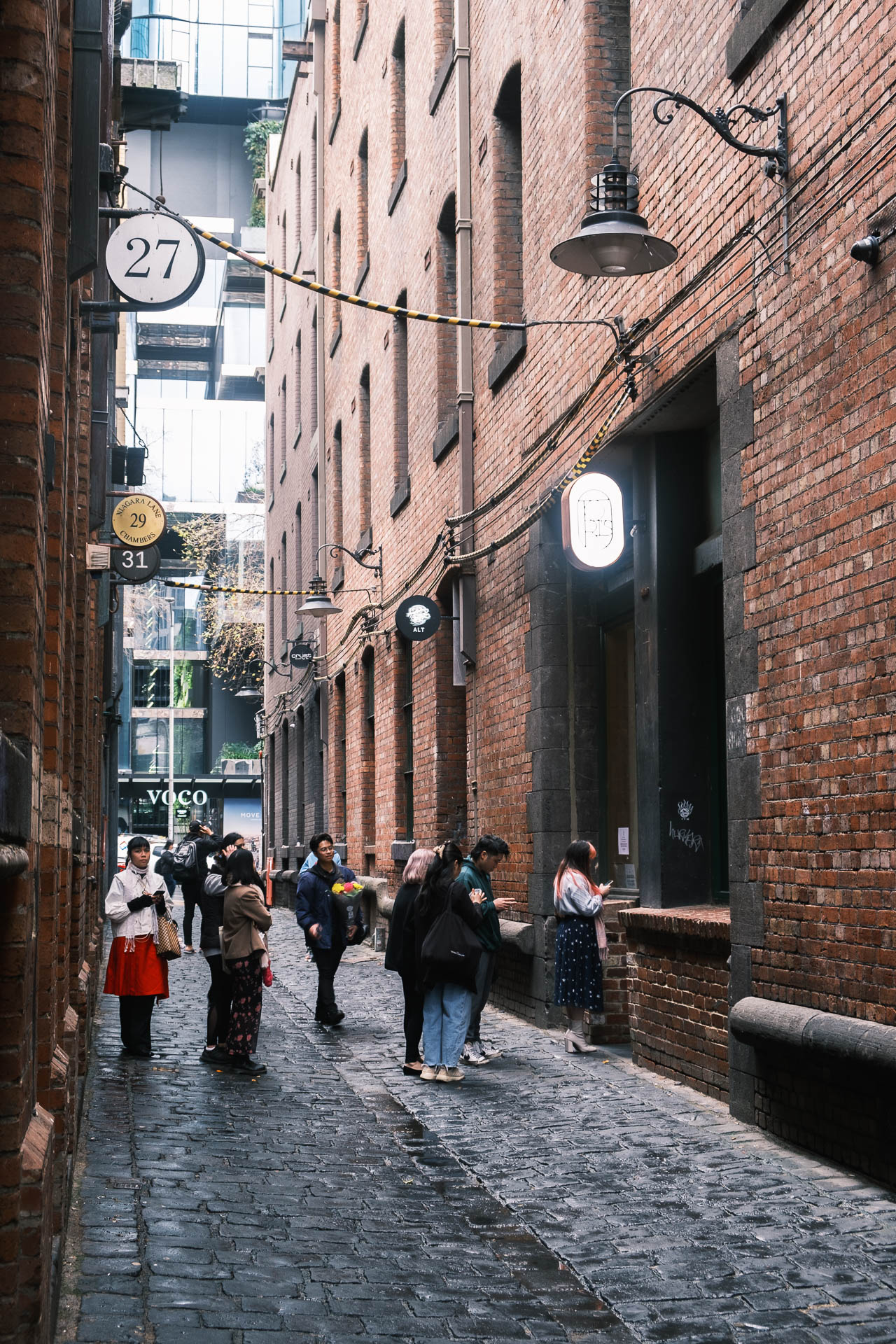
Niagara Lane is a laneway often overlooked. Walking past, it doesn’t seem there is much down there. It’s primarily residential, but there’s a bakery and winebar. The old-school cobblestones are a reminder of old Melbourne time.
Sniders Lane
Lonsdale St, Melbourne
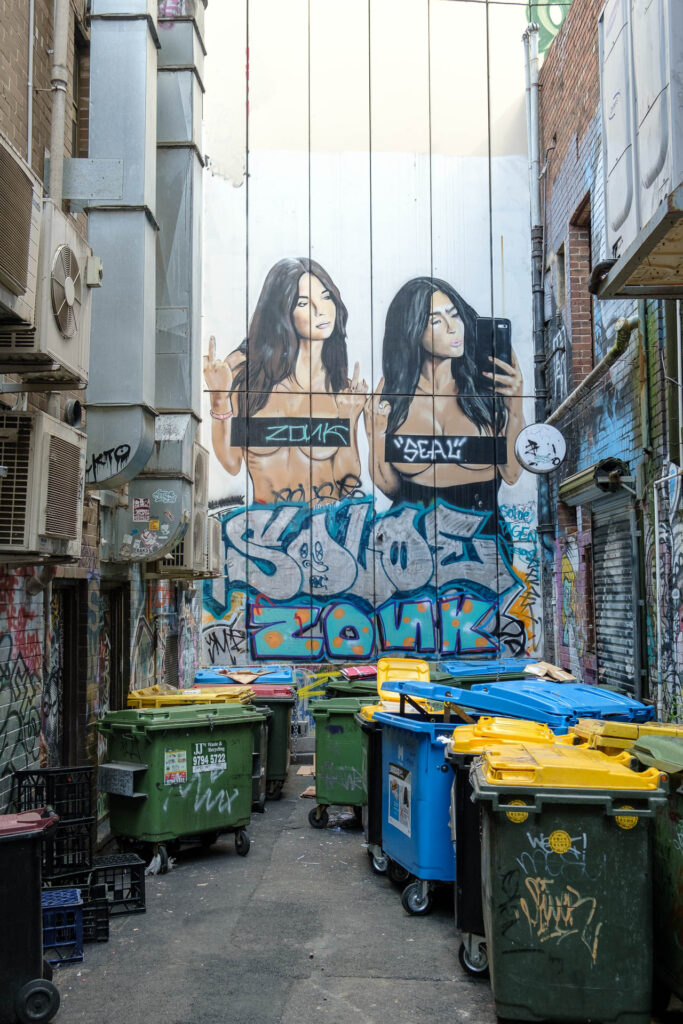
Sniders Lane runs alongside Melbourne Central and provides an entrance into the shopping complex itself.
The main attraction in Sniders Lane is the giant mural of Kim Kardashian and Emily Ratajkowski, painted by the meme lord that is Lushux.
Drewery Place
Drewery Lane, Melbourne
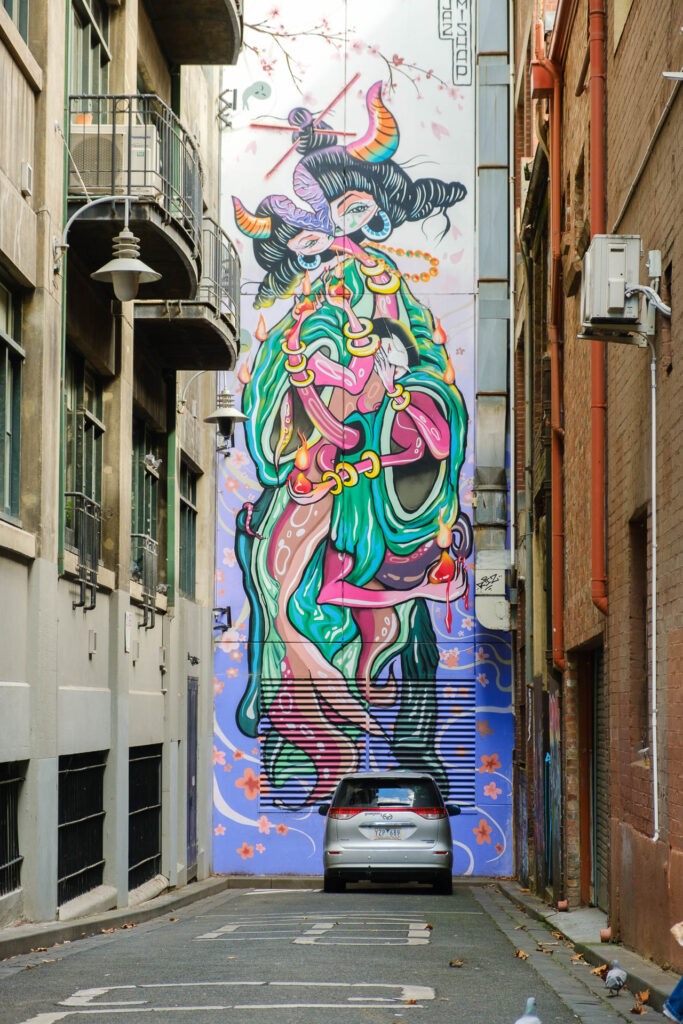
Around the corner from Snider’s Lane, and off Drewery Lane, this small laneway features a giant mural. There isn’t anything else down there, but I recommend visiting Bakemono, a Japanese cafe on the corner. They sell a collection of delicious pastries and the coffee is good too.
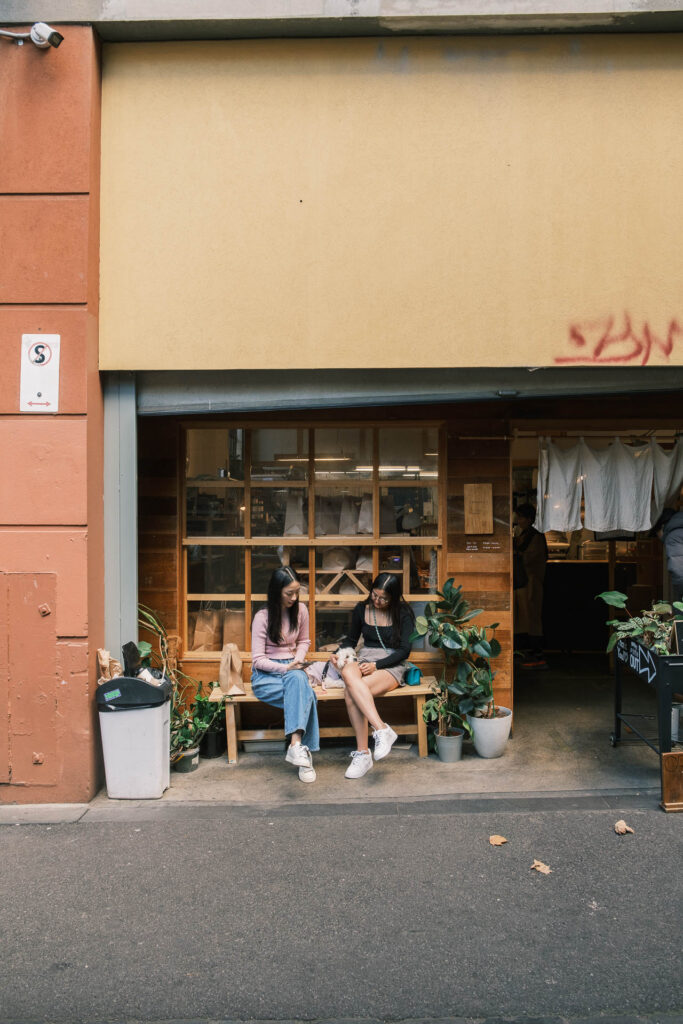
Advertisement
Ridgeway Place
Little Collins St, Melbourne
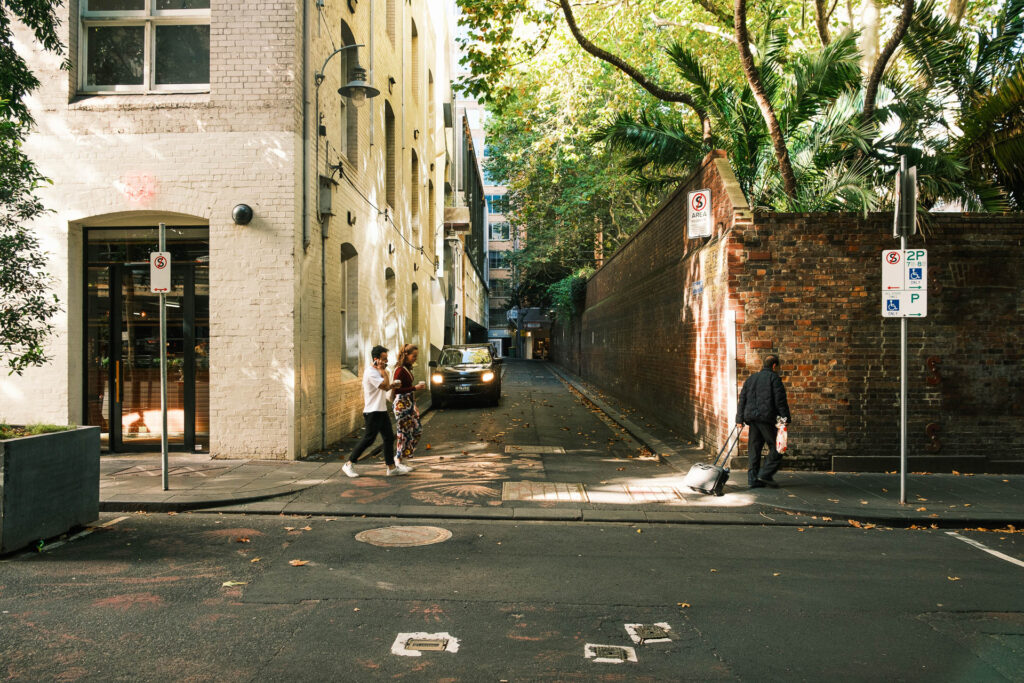
Ridgeway Place runs alongside the towering brick wall of the Melbourne Club, the city’s oldest men’s club.
Formed in 1838, the club boasts former prime ministers, world-renowned artists and mining magnates as its members. Behind the wall is a private English-styled garden, home to the oldest and largest plane tree in Victoria.
Also down Ridgeway Place is the Lyceum Club, a women-only club focused on art and culture.
If you have a membership for neither, enjoy a coffee at one of the cafes instead. Ridgeway Place is a convenient thoroughfare and will take you from Collins Street to Little Collins Street.
Melbourne Place
Russel St, Melbourne
The horse-shoe-shaped Melbourne Place is a small detour from Russell Street.
Along that detour, you’ll pass the Kelvin Club, a private mens club over 150 years old.
Bank Place
Little Collins St, Melbourne
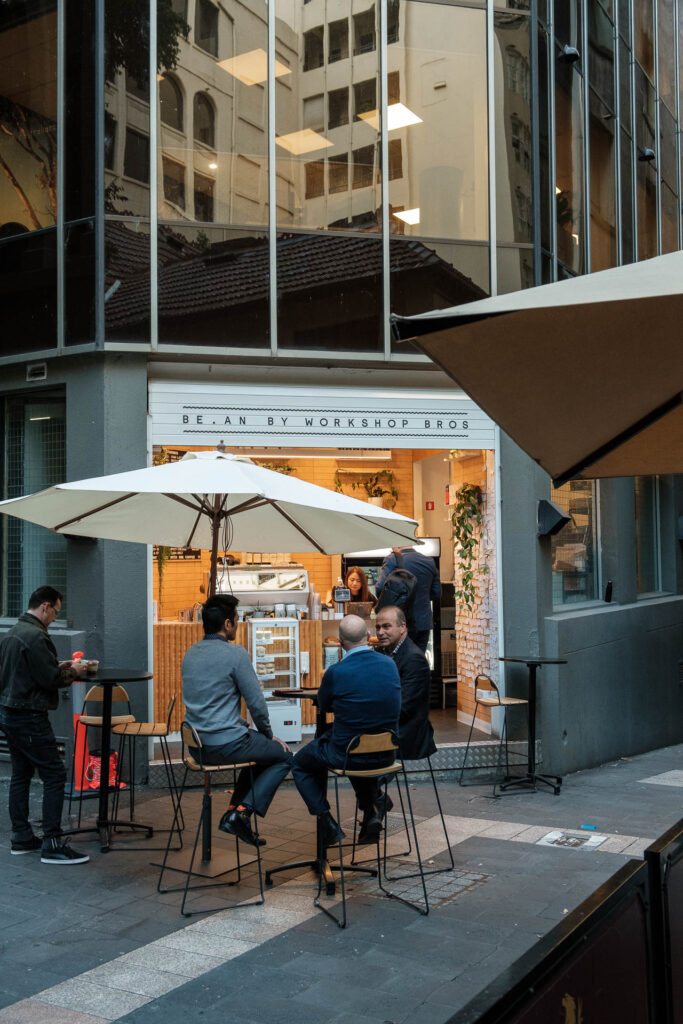
Listed on the Victorian Heritage Register, Bank Place is lined with buildings built during the pre-war period, from the 1860’s until the 1920’s. Now many of those buildings have ground-level restaurants and bars.
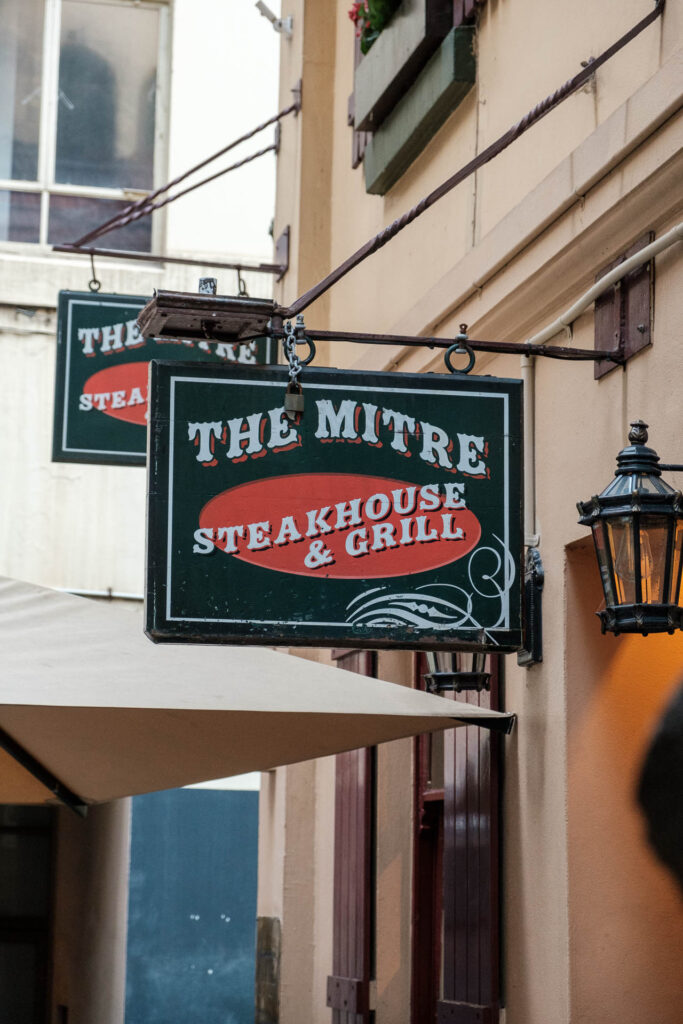
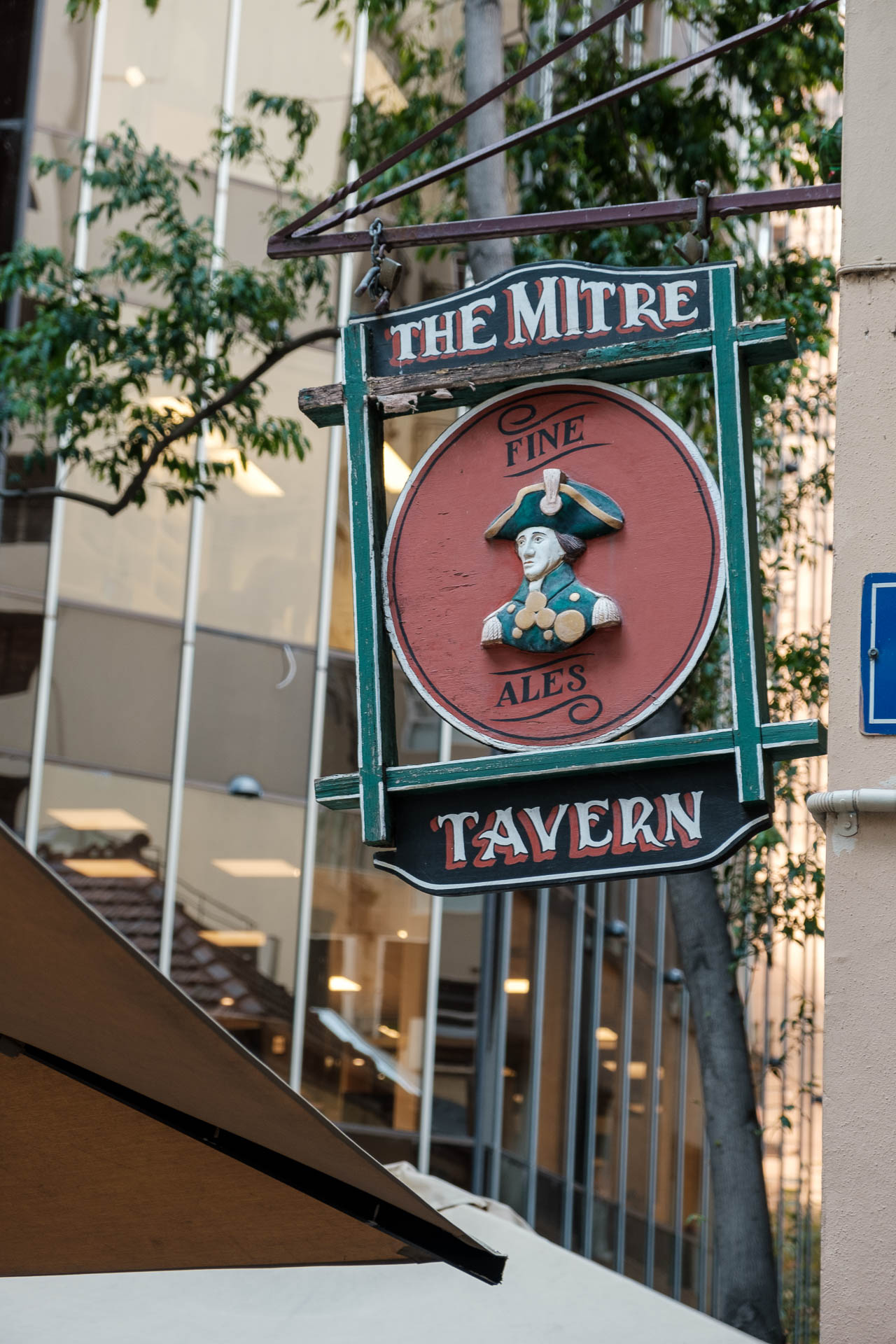
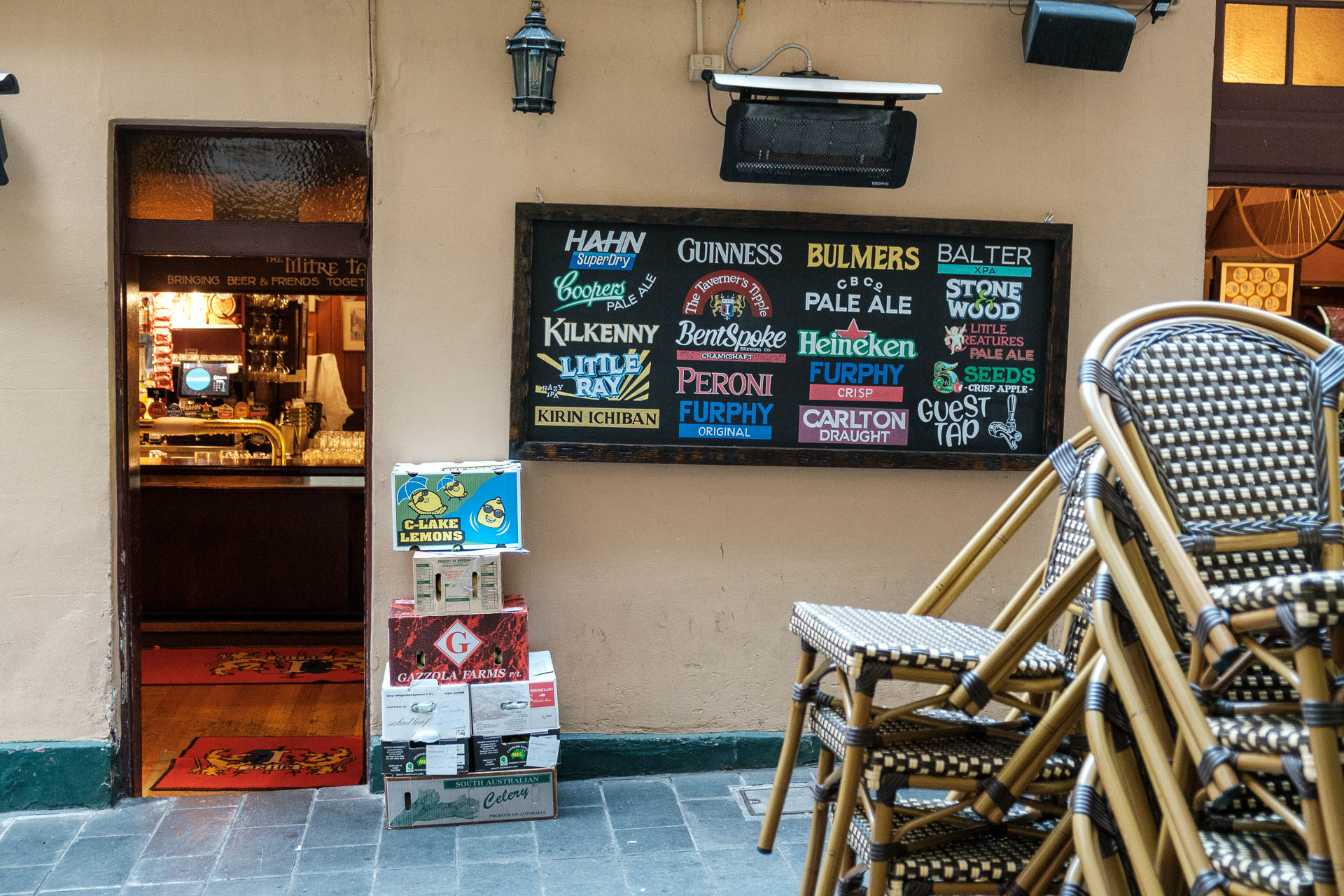
Advertisement
Postal Lane
Bourke St Mall, Melbourne
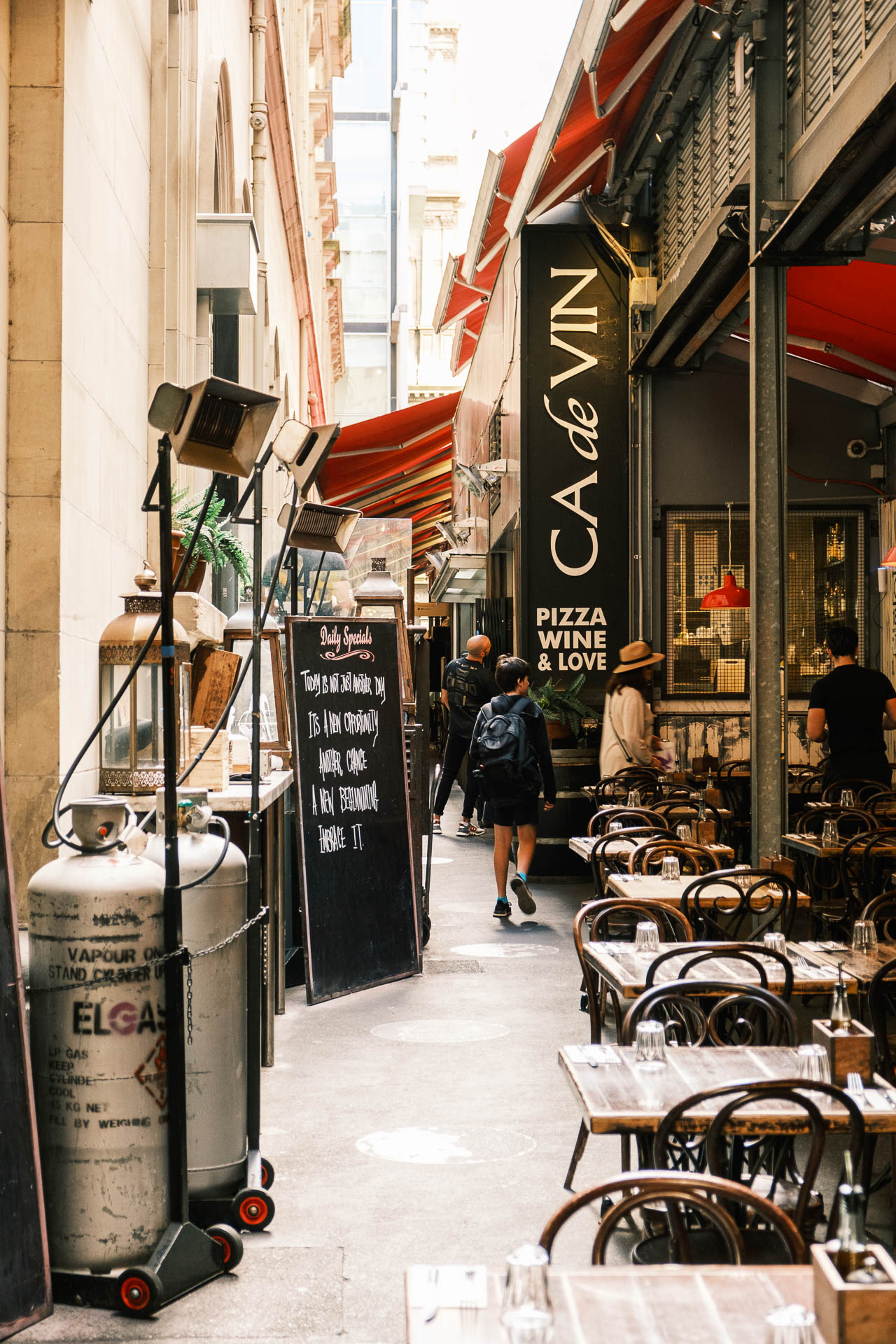
Blink and you’ll miss it; Postal Lane runs directly off the Bourke Street Mall, alongside the old GPO (General Post Office.)
The entrance is via Ca De Vin, a pizzeria and trattoria, but don’t worry, you can walk straight through – maybe grab a coffee on the way through.
Taylor was born and raised in Tasmania. He moved to Melbourne to study Film & television, and went on to start a marketing agency for hospitality.
He has a love for rock ‘n’ roll bars & New York-style pizza. In 2020 he was amongst the top 1% of Frank Sinatra listeners on Spotify.



